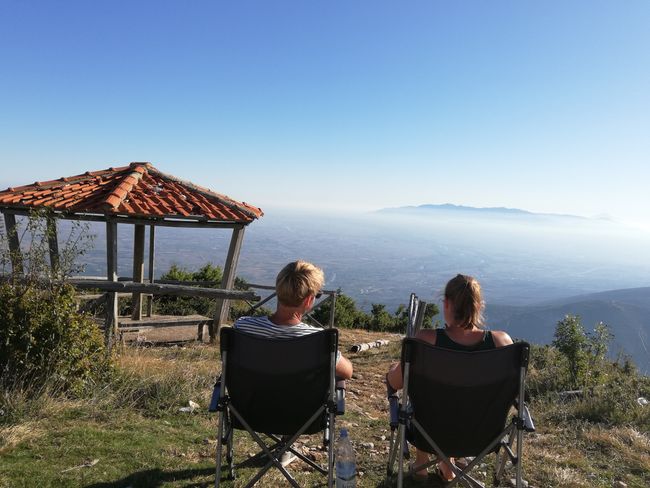
Lücke im Lebenslauf? Ja, ist geil!
vakantio.de/luckeimlebenslauf_jawargeil
Week 9 From the Black to the Thracian Sea (Romania, Bulgaria, Greece)
Buga: 12.10.2019
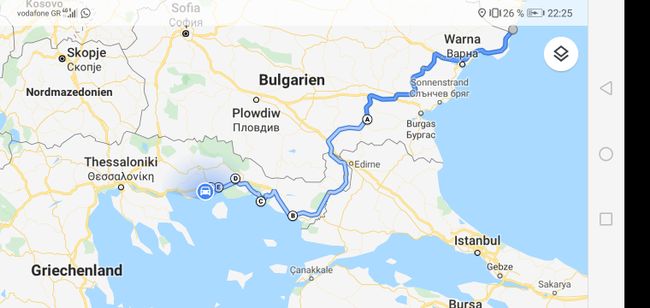
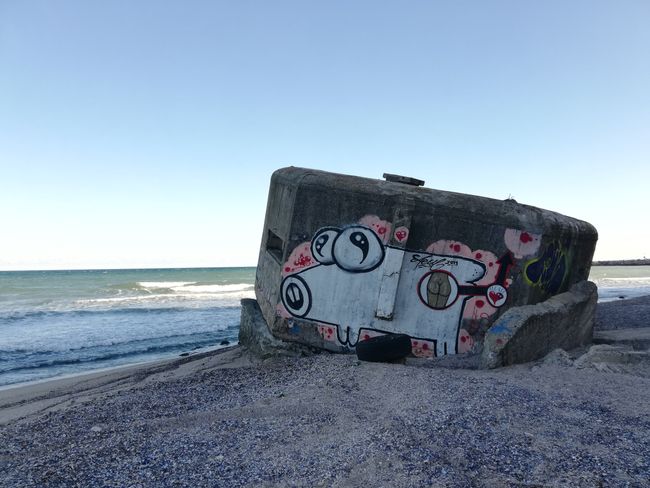
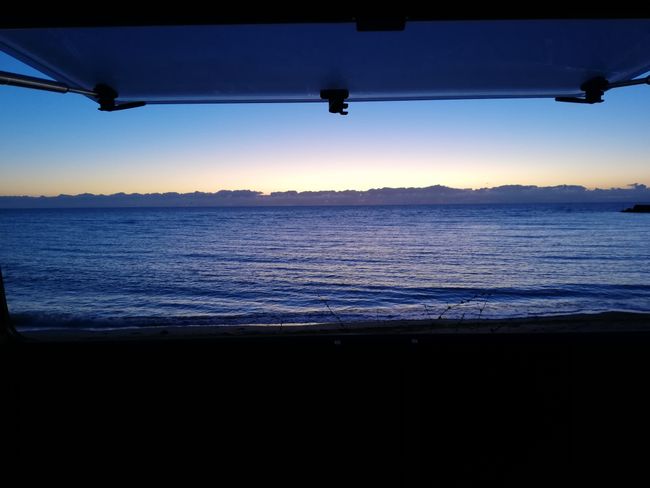
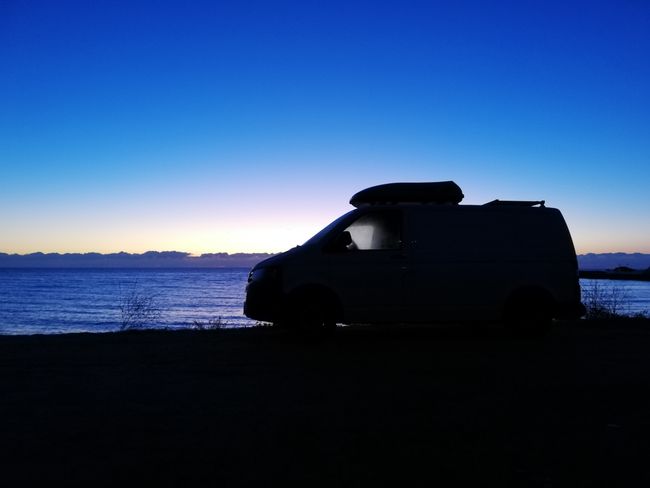
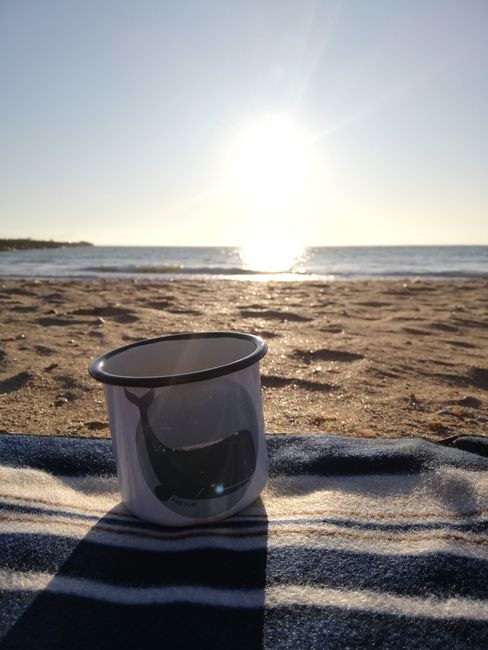
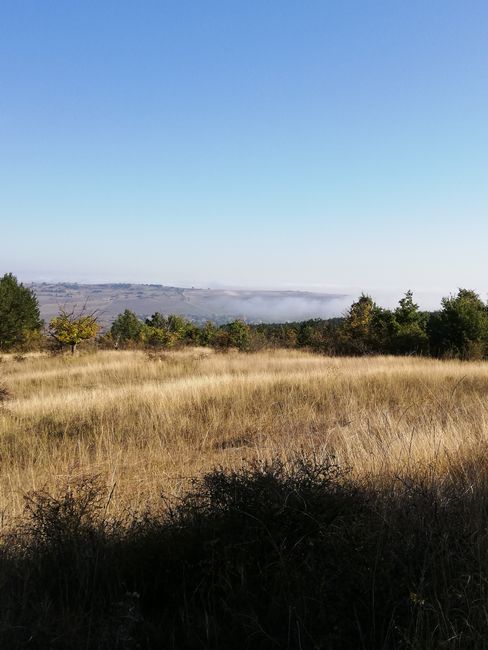
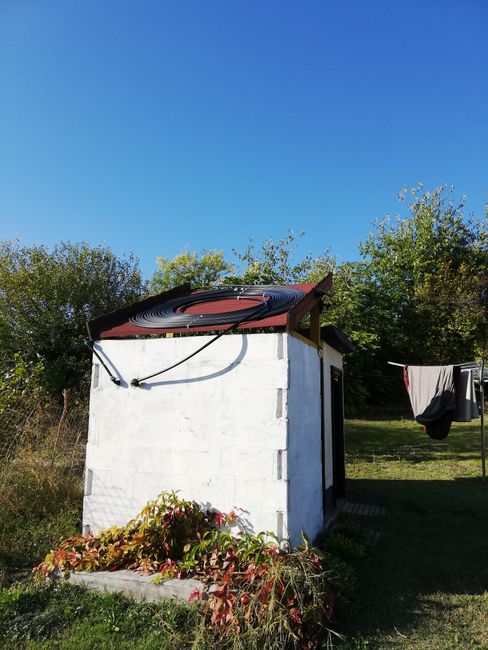
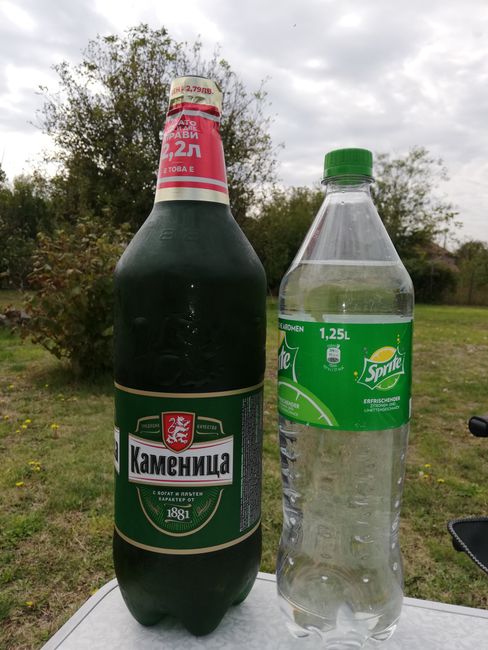
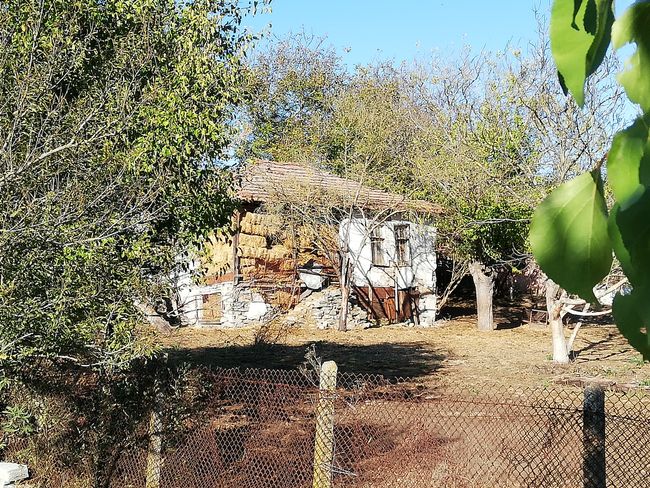
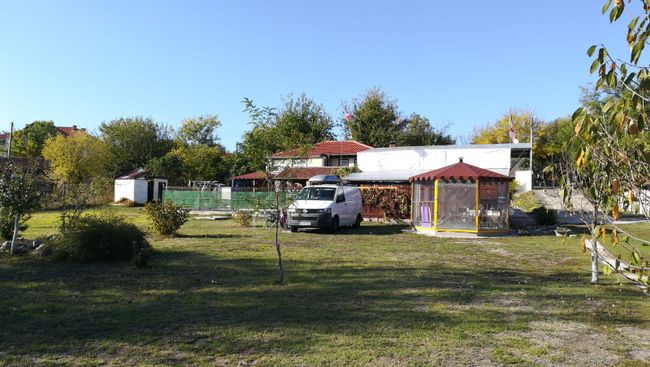
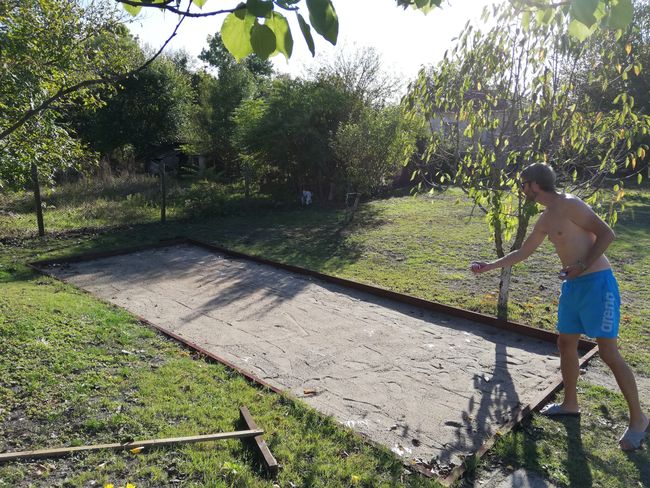
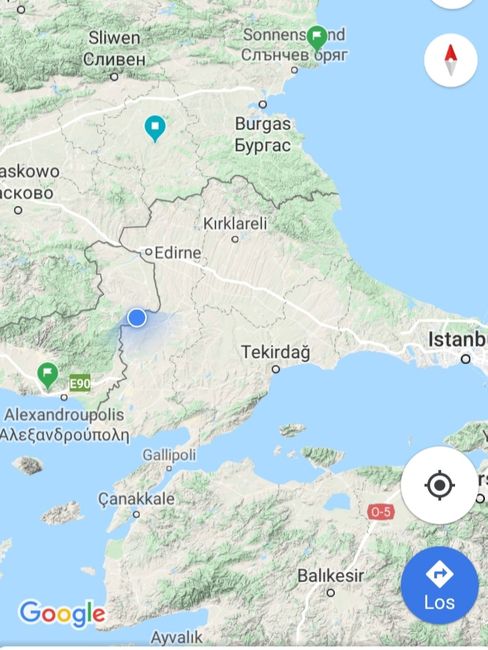
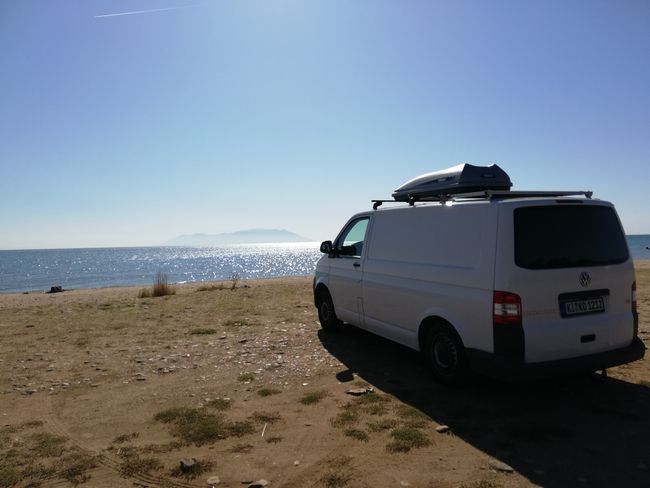
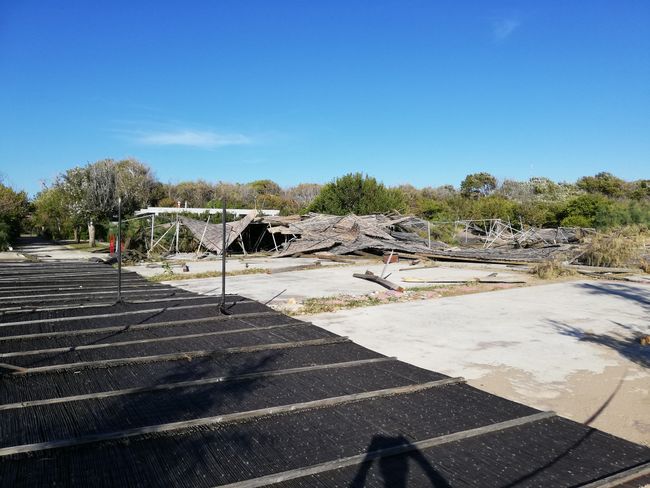
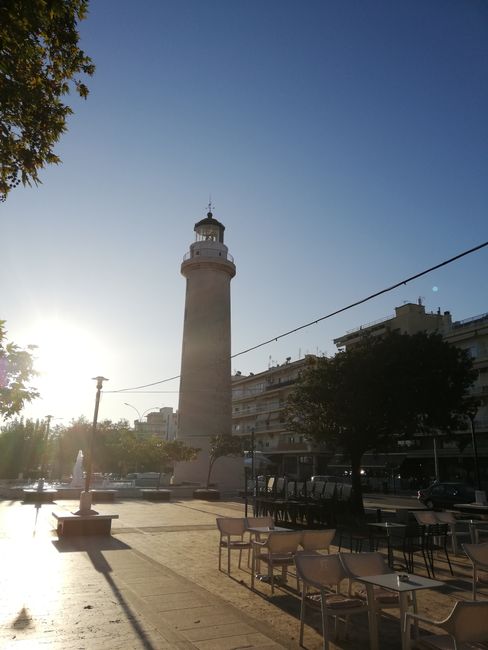
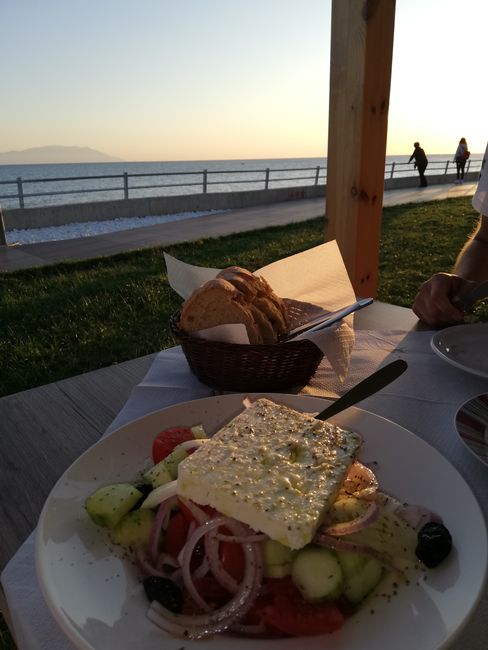
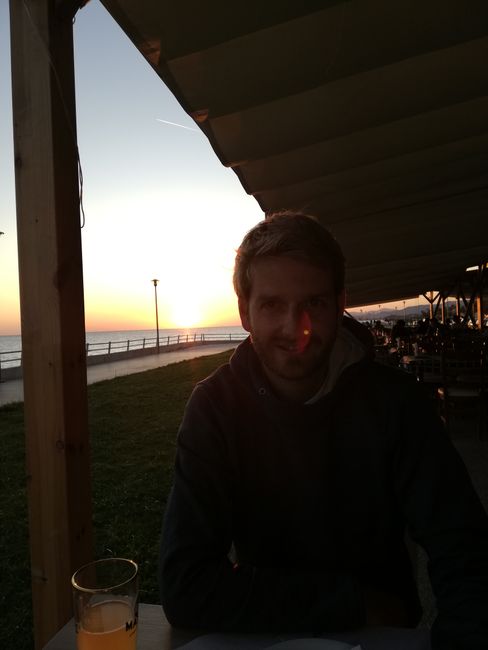
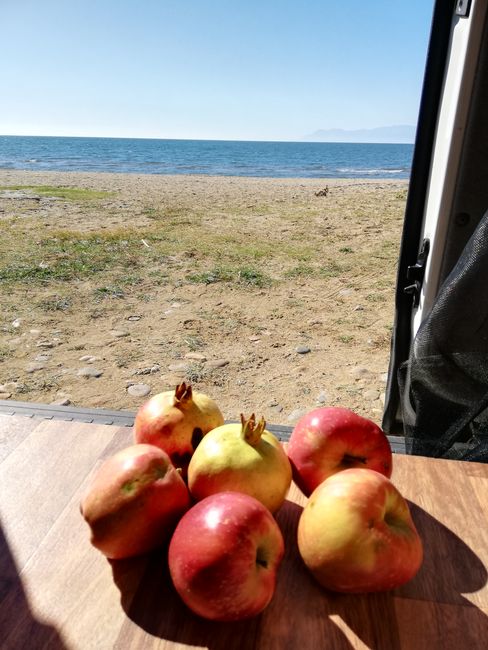
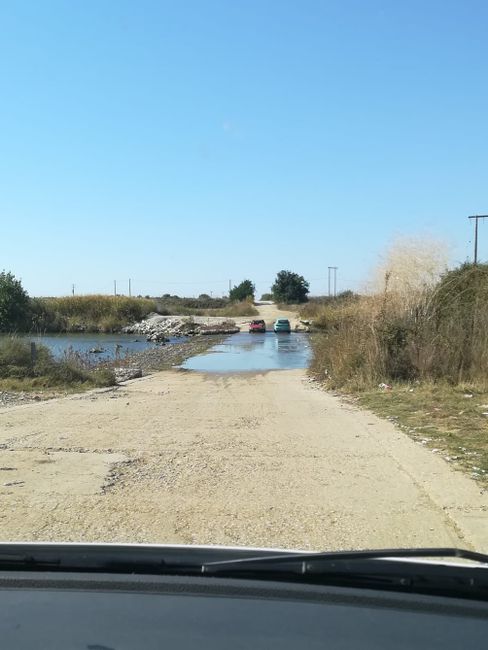
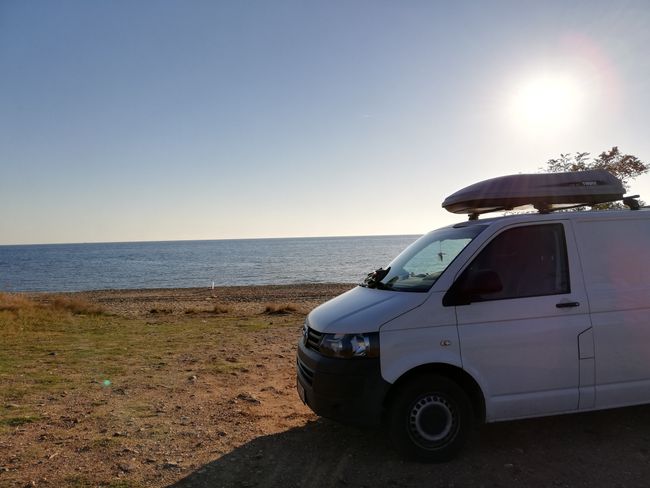
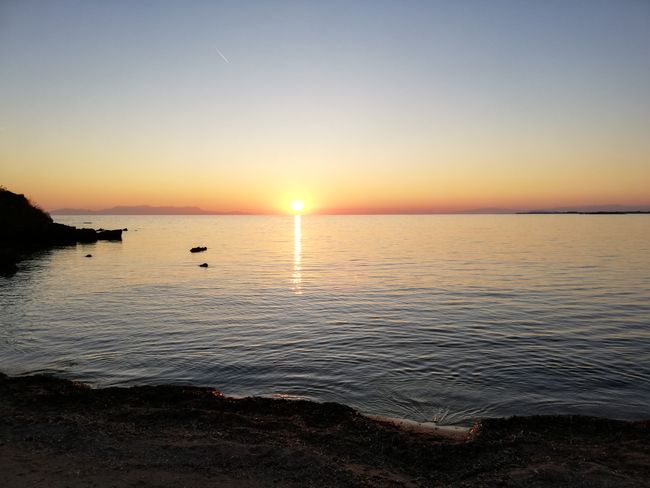
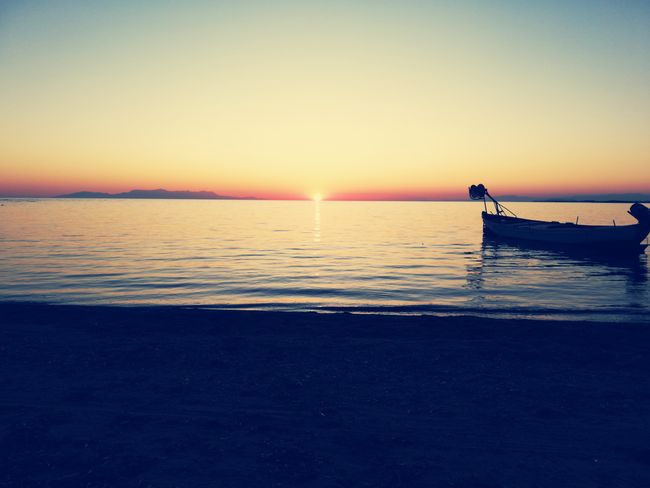
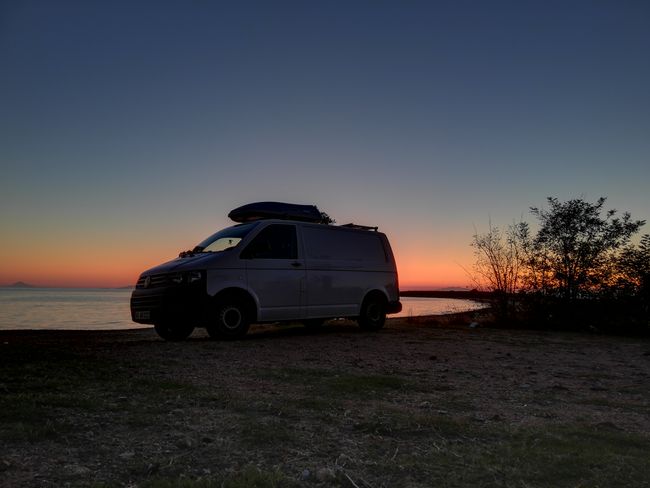
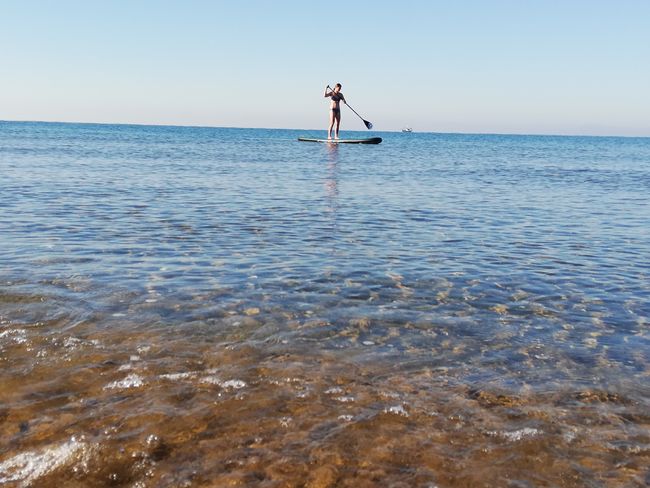
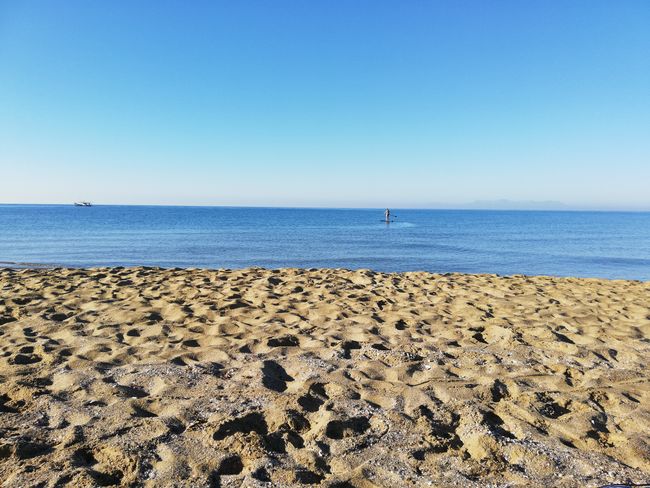
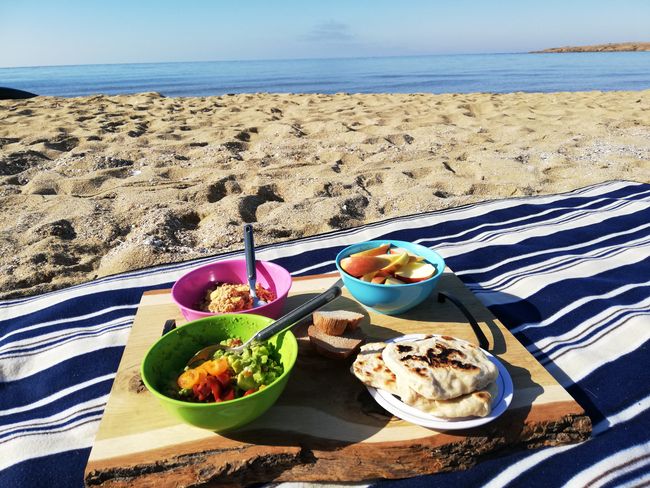
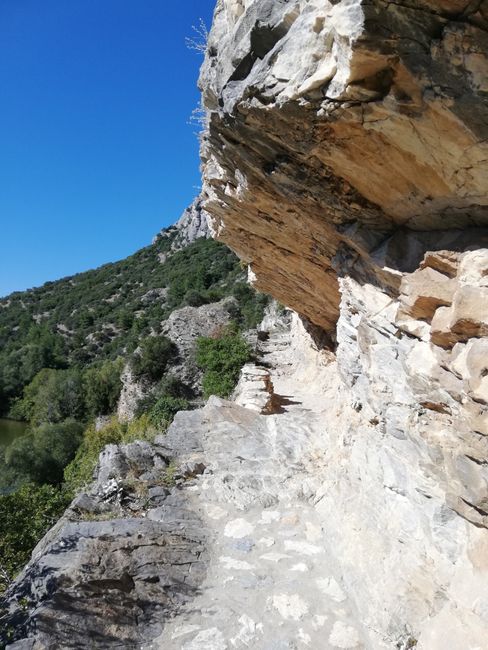
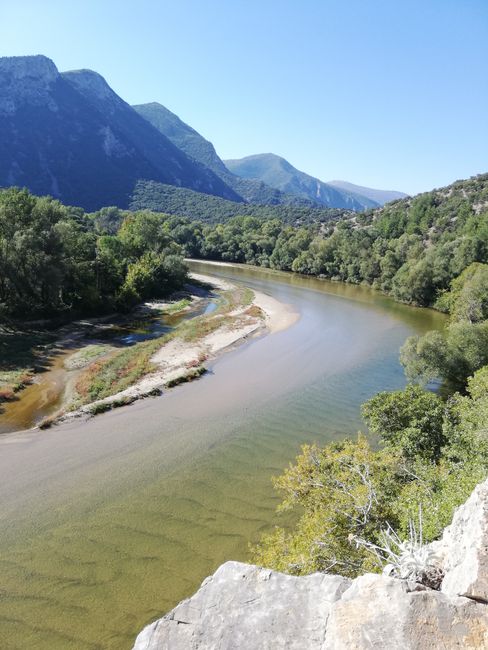
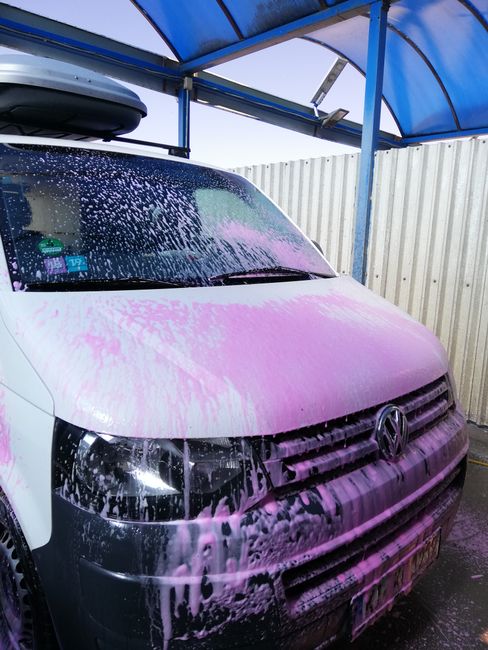
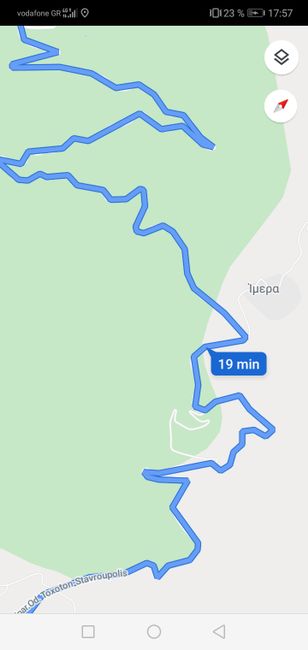
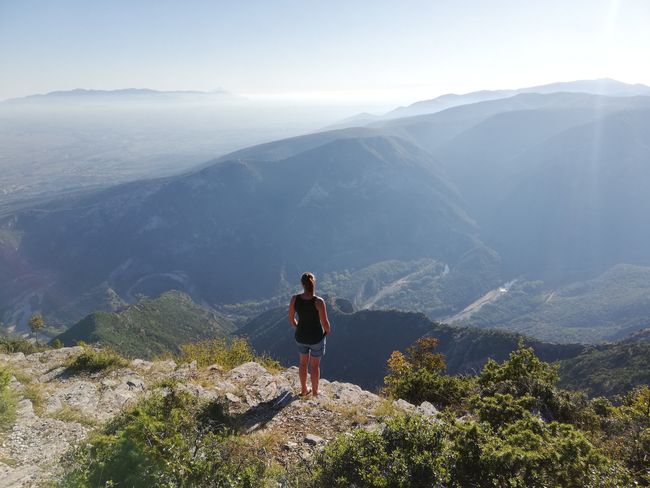
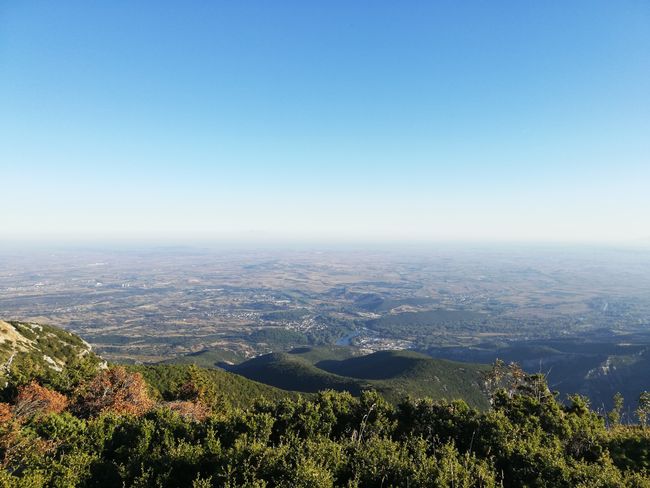
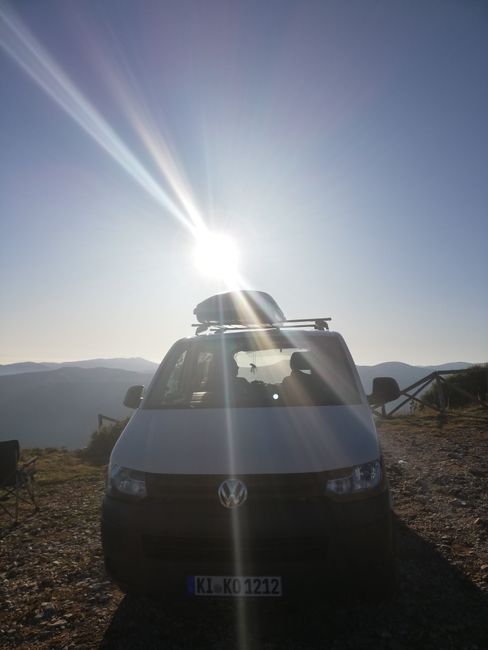
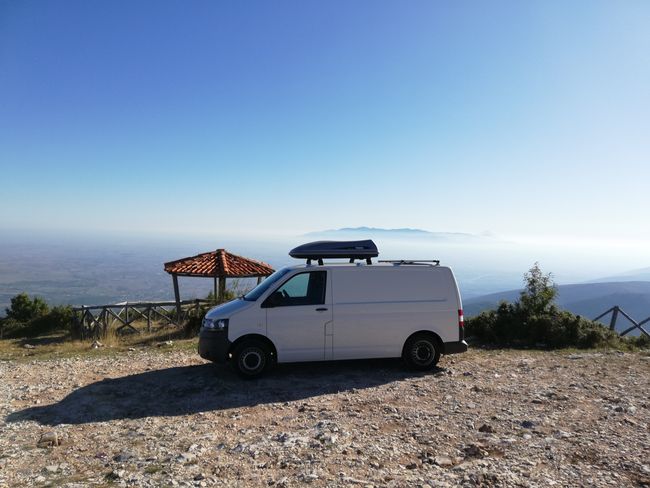
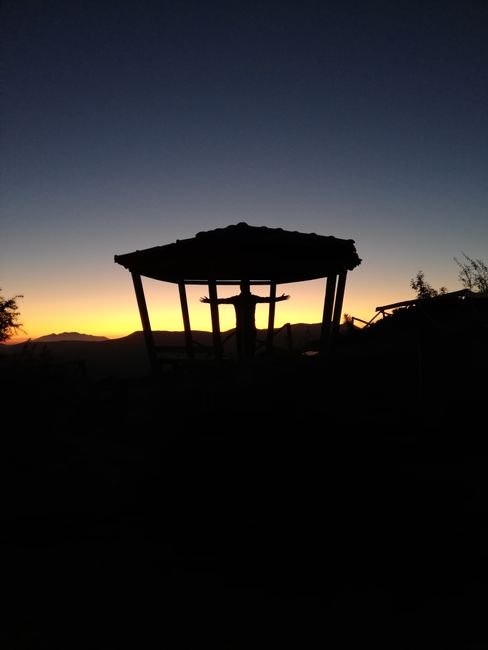
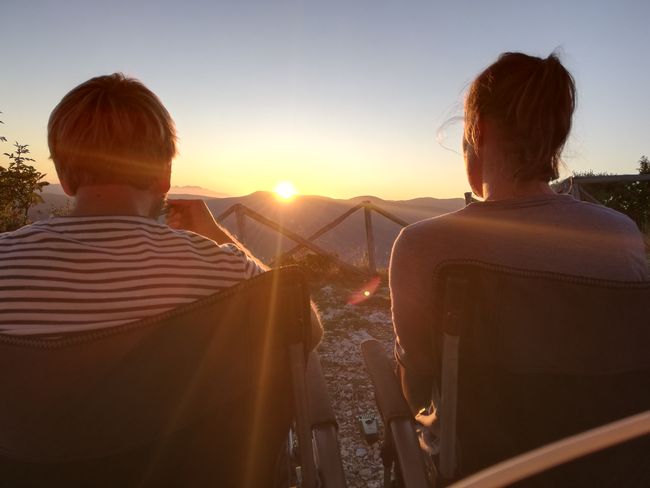
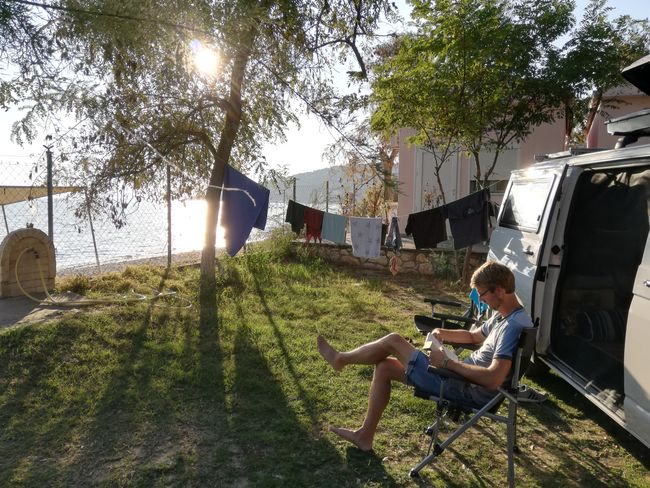
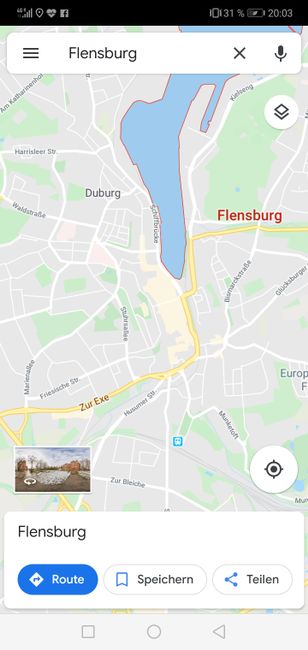
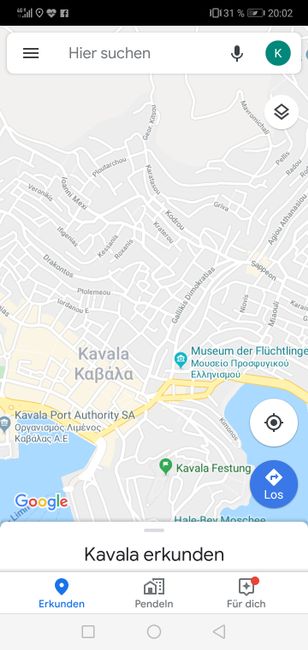
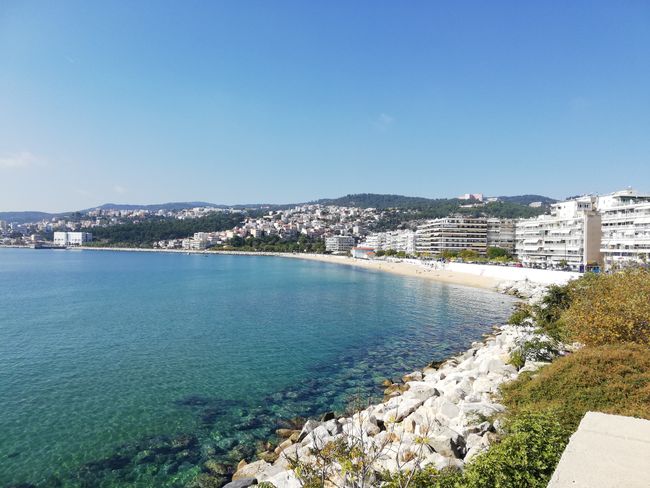
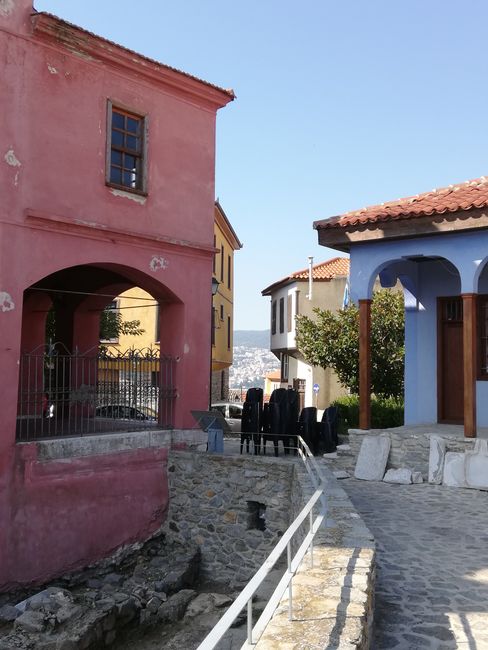
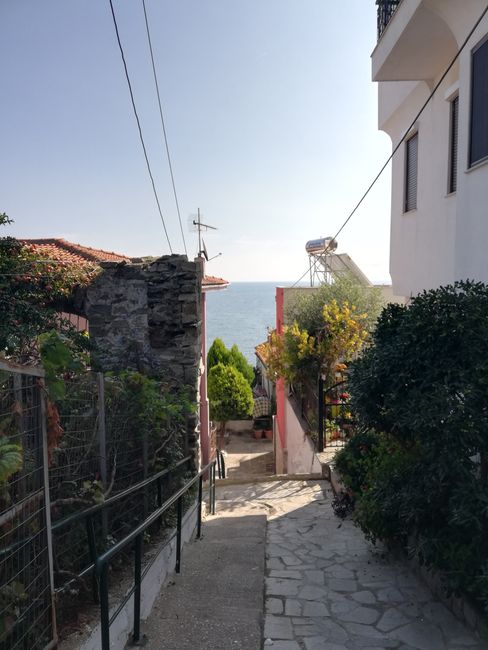
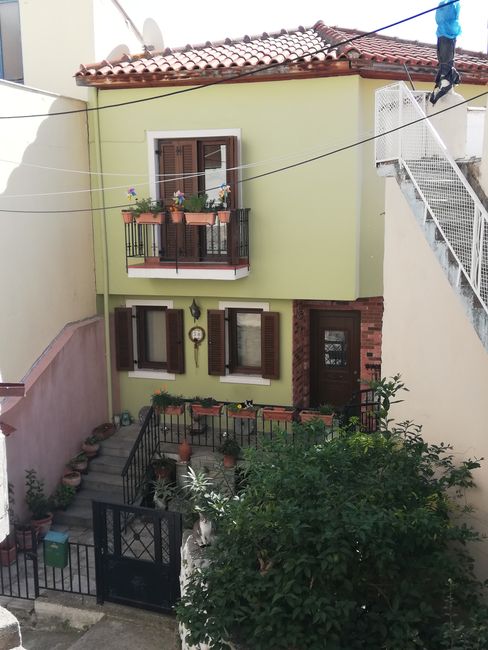
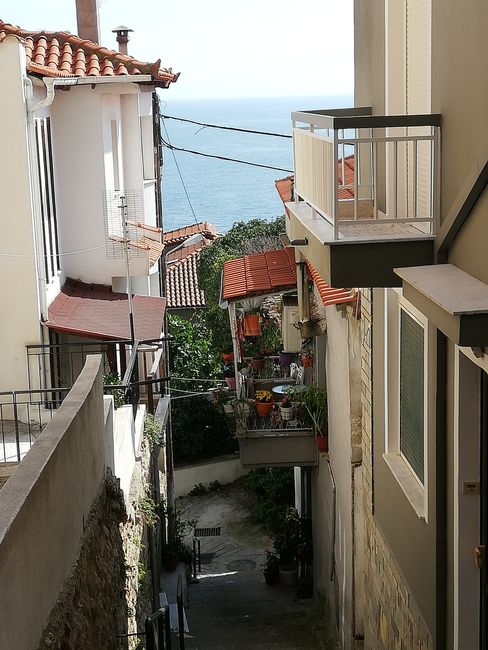
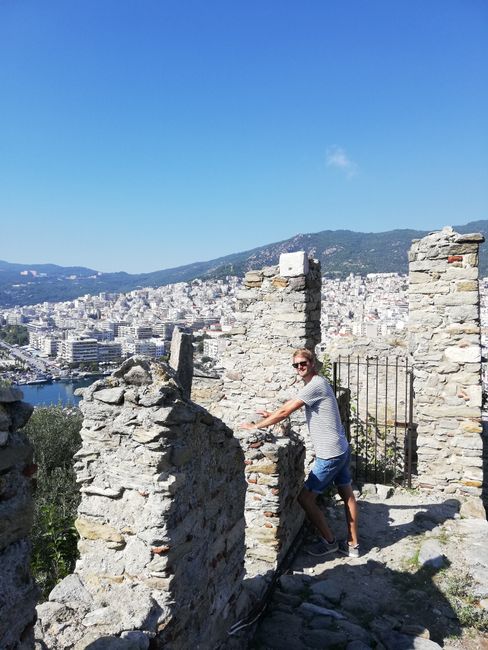
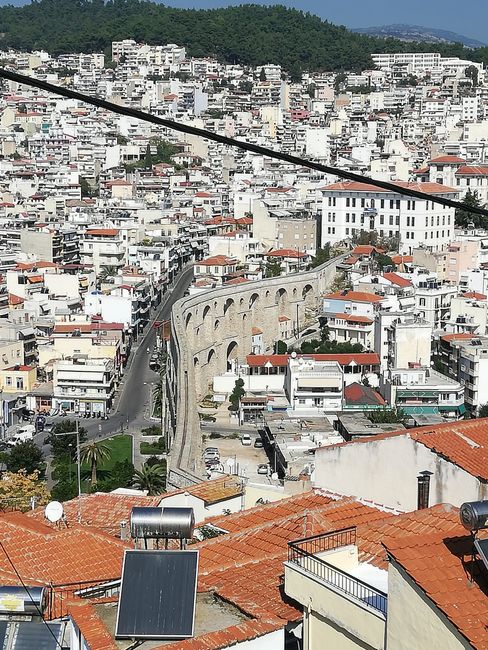
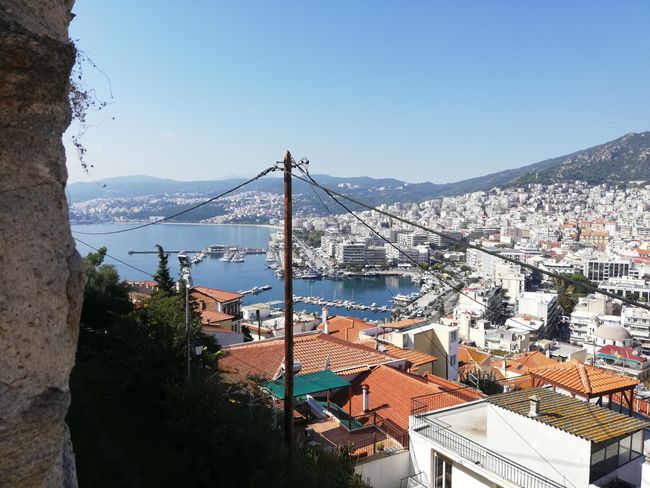
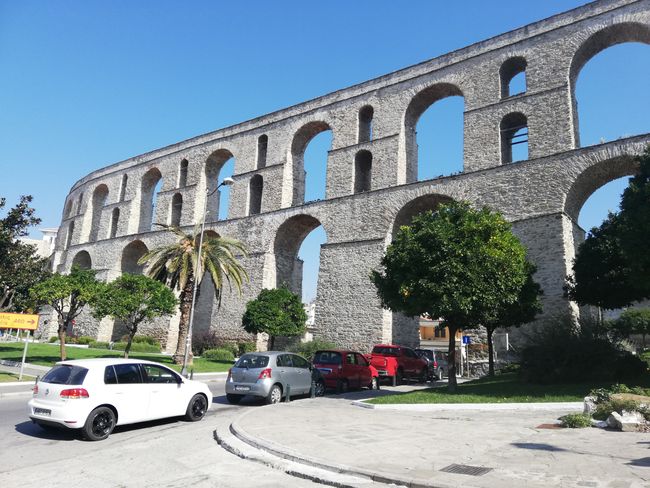
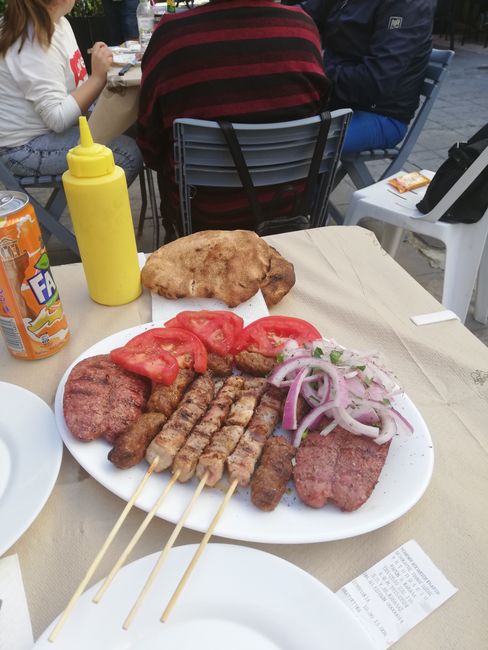
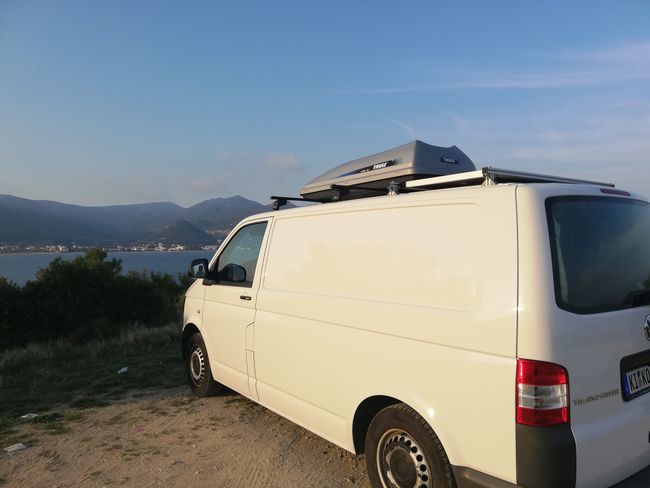
Biyan kuɗi zuwa Newsletter

Our night at the Black Sea was incredibly relaxing. We could almost put our feet in the sea from the bus and constantly had the sound of waves in our ears because of the wind. It was also pleasantly warm at night for the first time in a long time. It was a unique feeling to have driven so far east and actually reach the Black Sea.
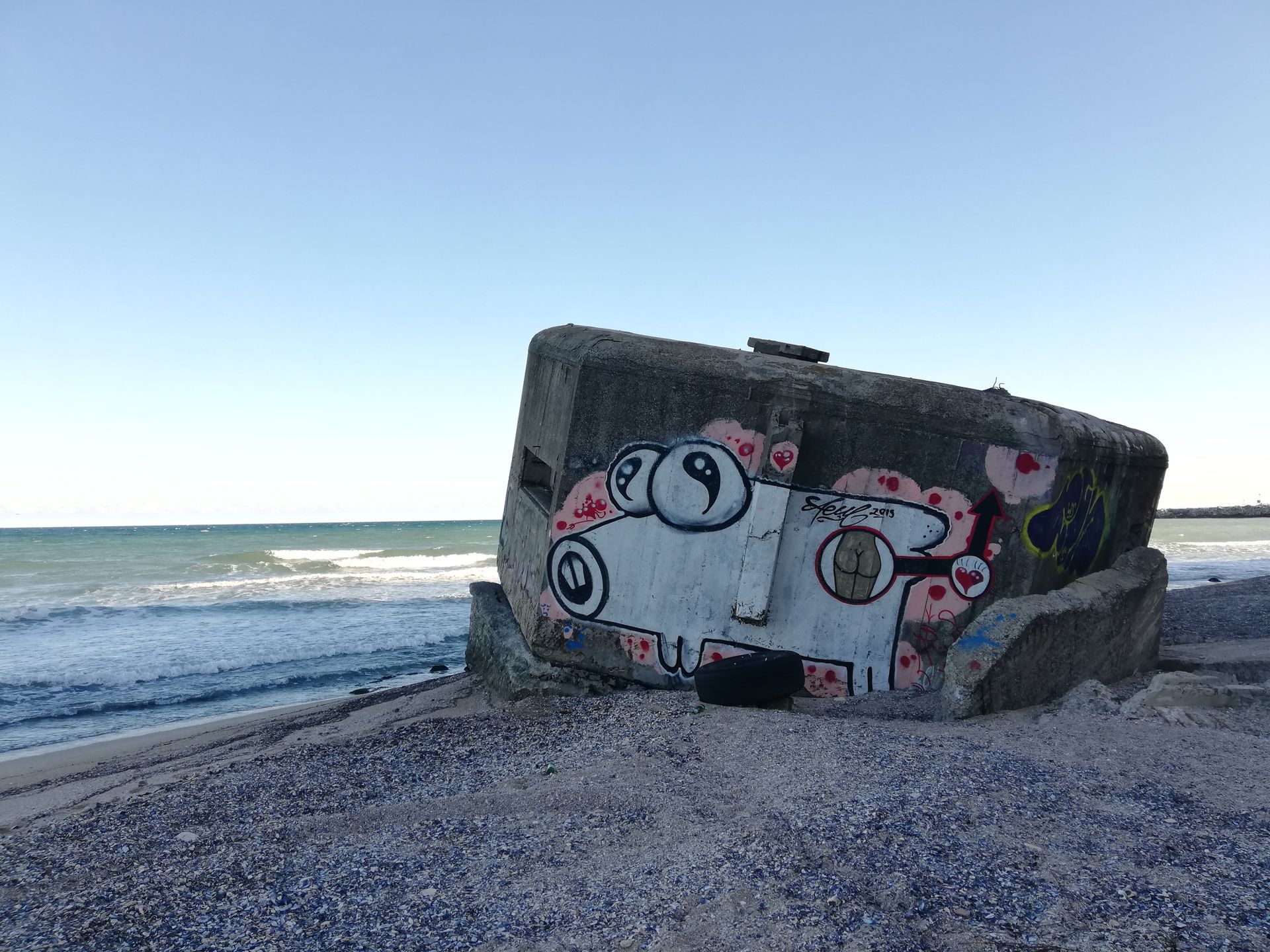
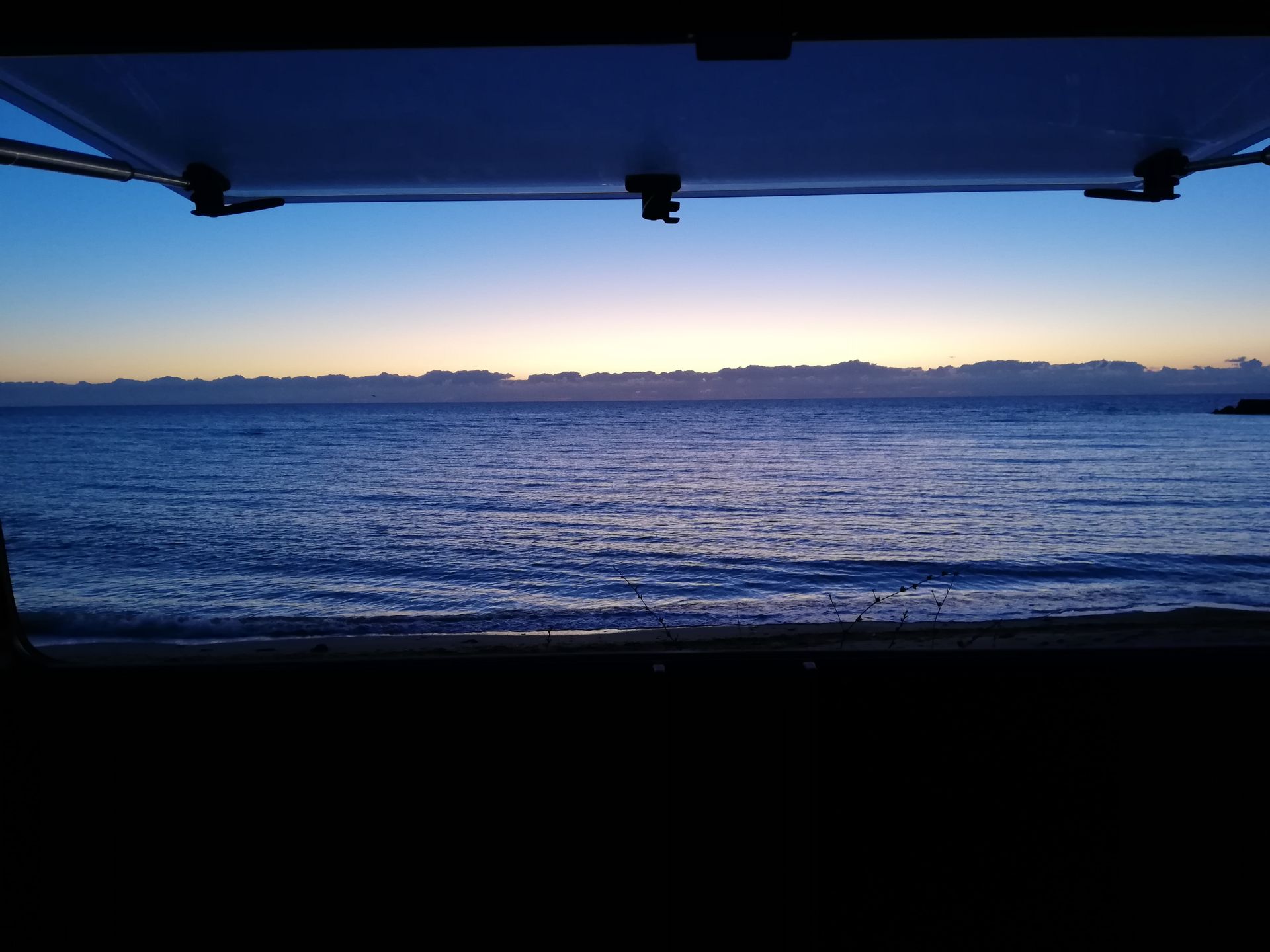
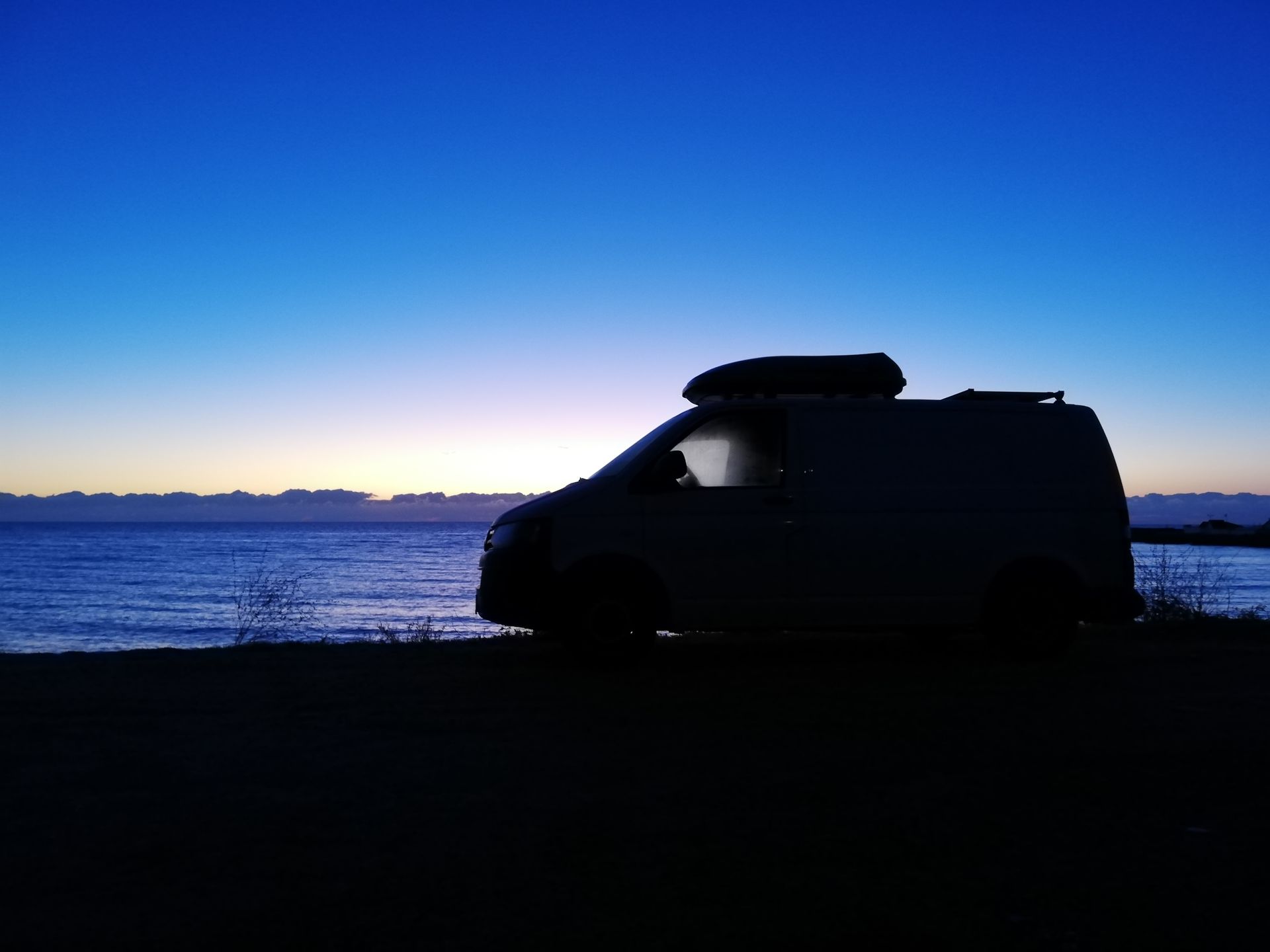
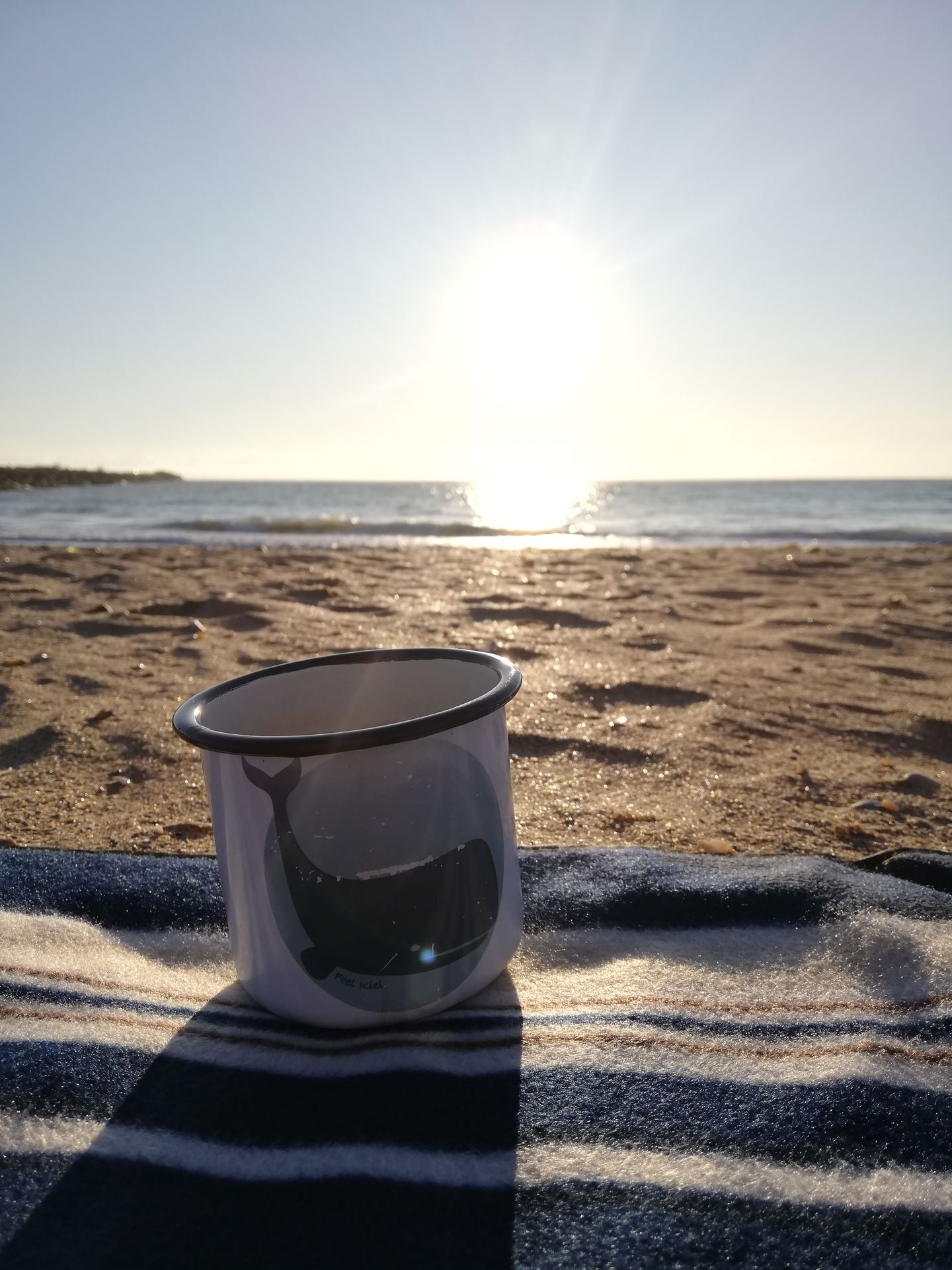
However, as we got closer to Bulgaria along the coast, we noticed that everything was geared towards mass tourism, which was already fading away in October. In other words, all the sidewalks were folded up. It was good for us to park freely, but it wasn't exactly exciting to drive through ghost towns. Therefore, we decided to move away from the coast and take the direct route to Greece. Well, during all the research we did on Romania and Greece over the past few days and weeks, Bulgaria completely slipped our minds. Our research is already very time-consuming, and we didn't feel like spending every evening on our phones. So, Bulgaria became the second country of our trip, alongside Hungary, that we mainly just passed through. Sometimes, we wondered if it was a mistake and if we should give Bulgaria a chance. But haphazard research isn't the solution either. In the end, you end up only visiting the first few results on TripAdvisor and still not being satisfied. So, we made the best of it and took our time on the tour, getting out here and there to enjoy the beautiful landscape. There were many different small mountains, and the little villages in the valley, with morning mist rolling in, looked like paintings.

Following the advice of our camping neighbors from the Danube Delta, we now also used the Campercontact app to find a pitch and ended up finding a campsite in the middle of the Bulgarian countryside. We were quite happy because we always try to spend the first night in a new country on a campsite. So, we headed to the Boyanovo campsite and were lucky that it was still open. It was a beautiful little garden where we could park, with a sweet owner who was originally from Great Britain and the option to pay in euros so we didn't have to withdraw a new currency from the ATM. The Bulgarians have the lev, which was pegged to the German mark back then, so approximately 2 lev is 1 euro. The campsite had an outdoor shower heated by solar power, which we thought was a great idea. There was also a boules court, and we took the opportunity to practice our aim for the next Flunkeyball season. We stayed for two nights.
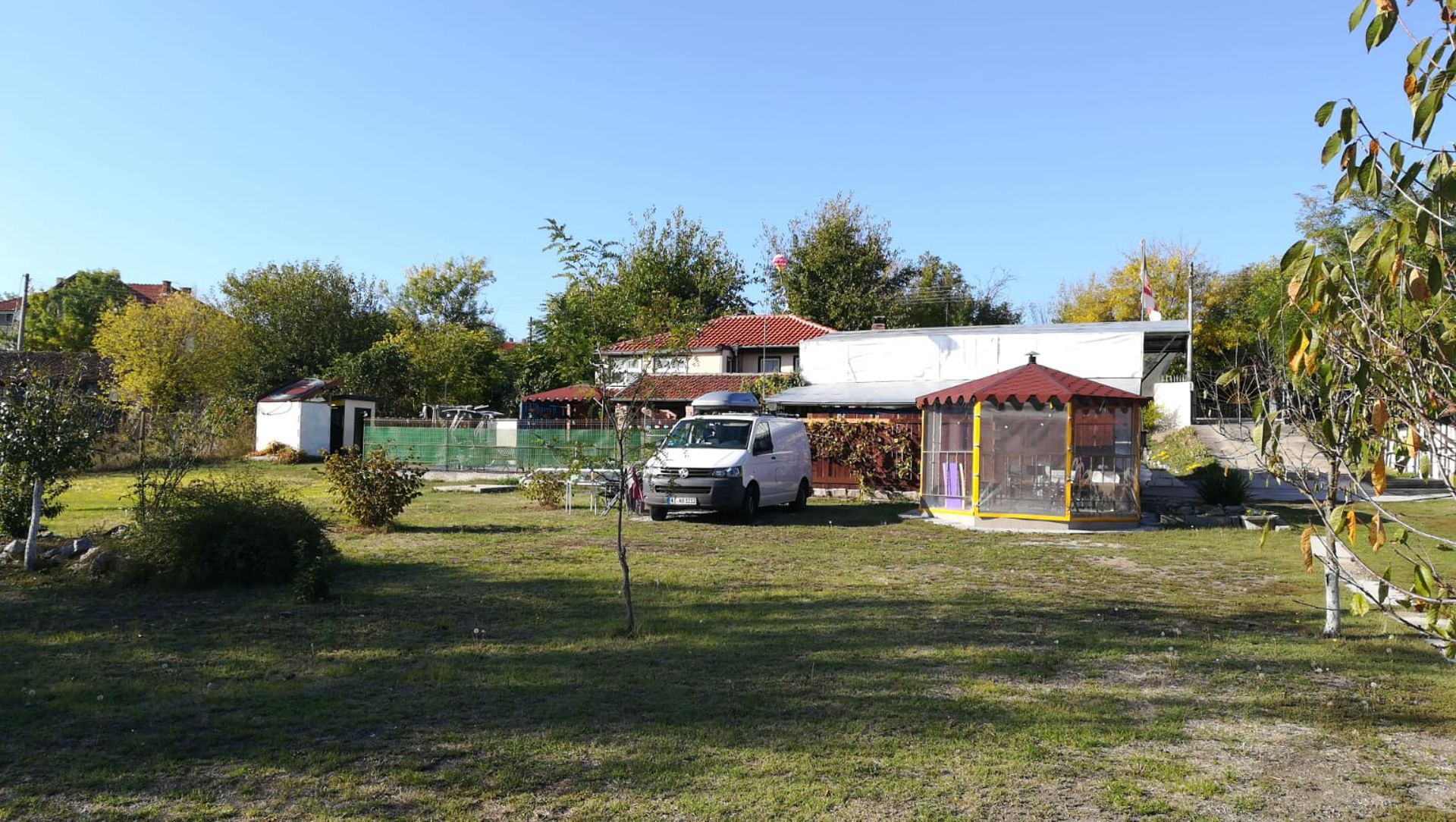
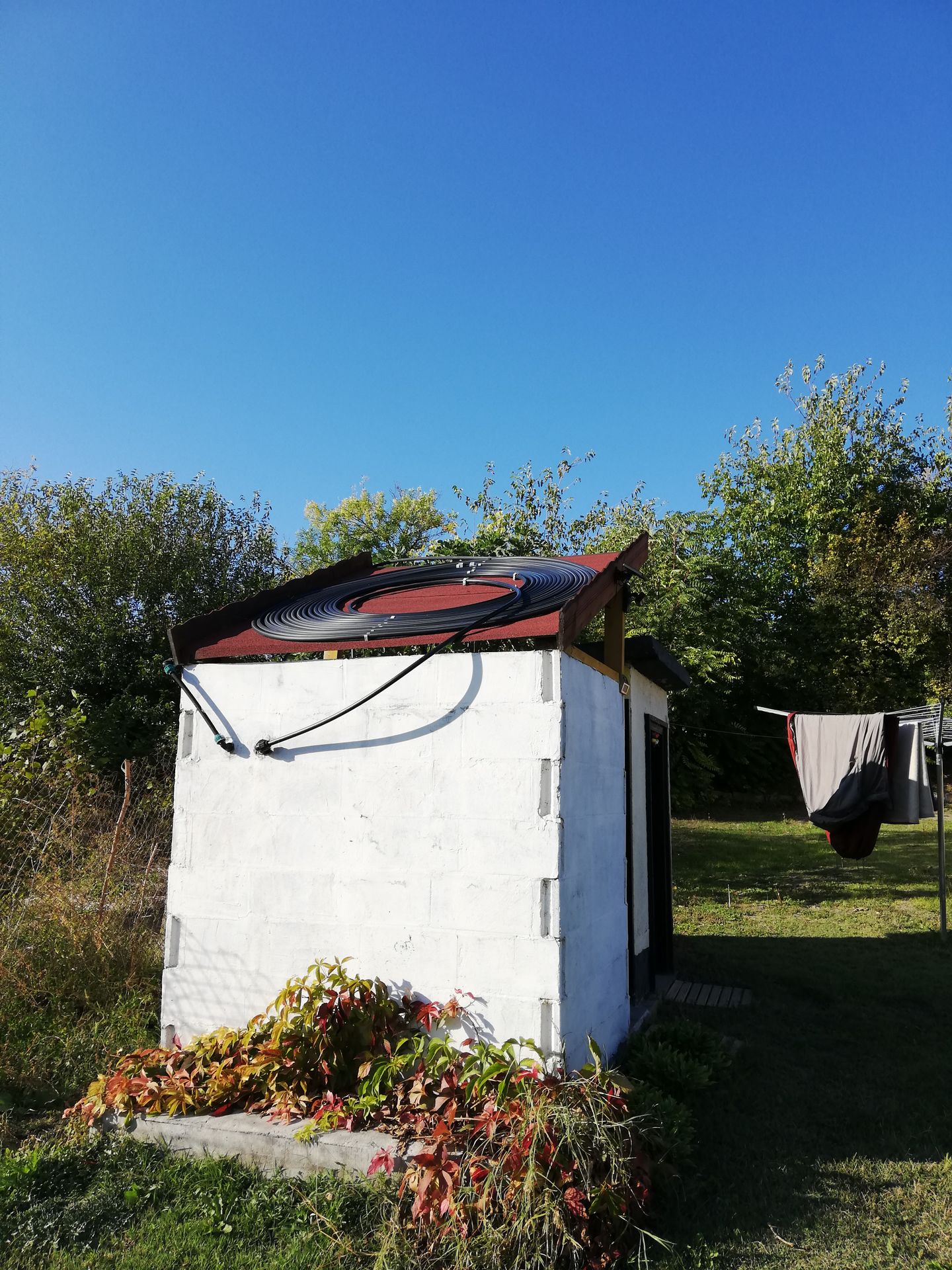
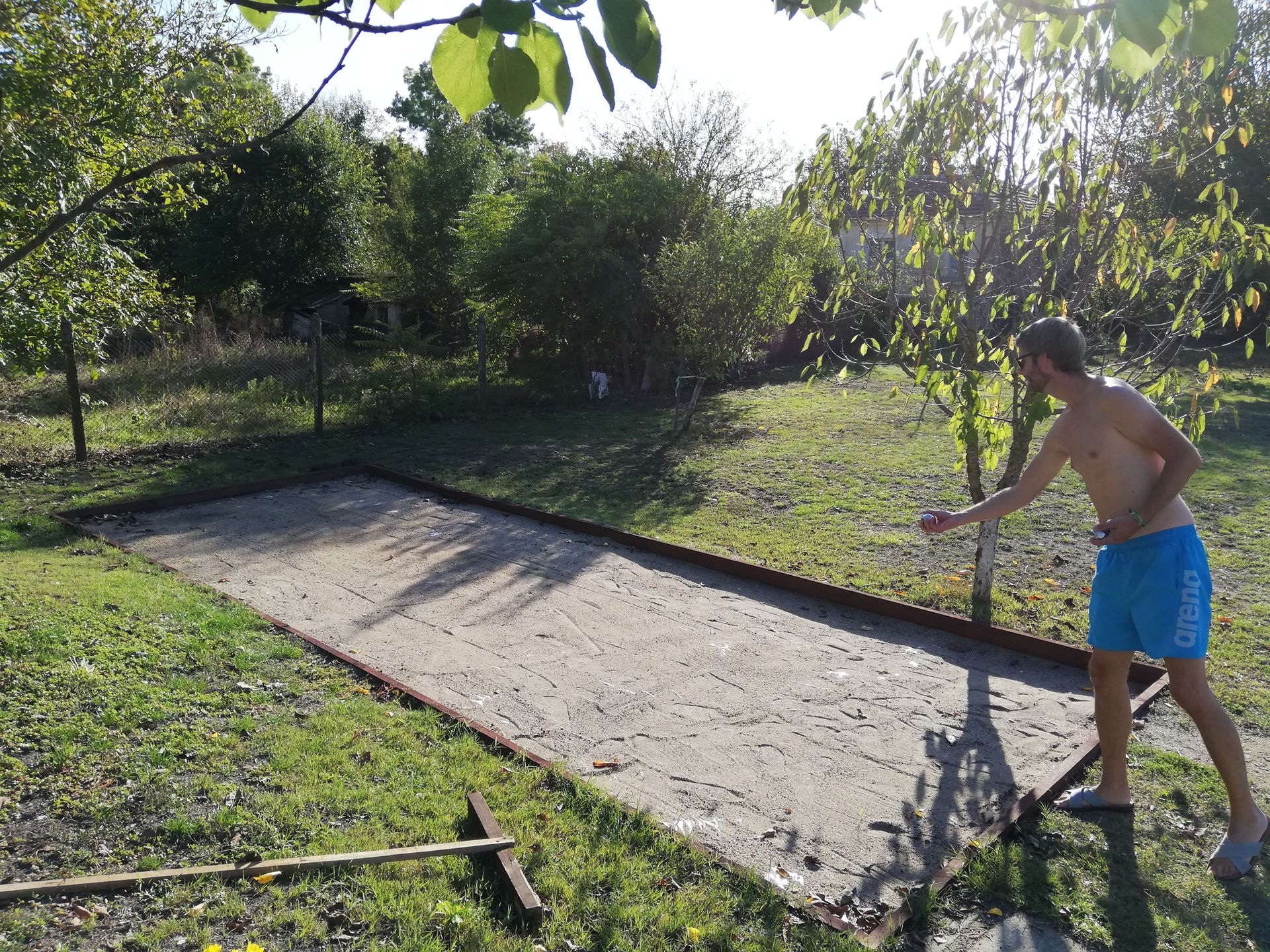
About twice a day, the British man who owns the campsite came over to chat, which was always a lot of fun. He also travels a lot with his camper van and gave us good advice on which roads towards the south are toll-free and free of potholes. He told us that there are supposed to be some Bulgarian maps with roads marked on them that were never actually built. It seems that the Soviet Union was very good at planning.
In the evening, he brought a bottle of beer and gave it to us as a gift. But he said it was only ONE to share...

As beautiful as the campsite was, the village where it was located seemed to be dying out once again. He told us that there are now only a third as many people living in Boyanovo as there were 13 years ago when he moved there. The young people are moving to other countries, and the elderly are passing away. Almost all the properties of the deceased are left empty. He said that the neighboring property could be purchased for 3000 euros. However, the house on it was dilapidated. The other neighbor is a small farmer and already lives at his minimum existence level. His house is also a storage for straw, and his garden is a cow pasture. During the day, he has to take his cows a fair distance out of the village to find grass.
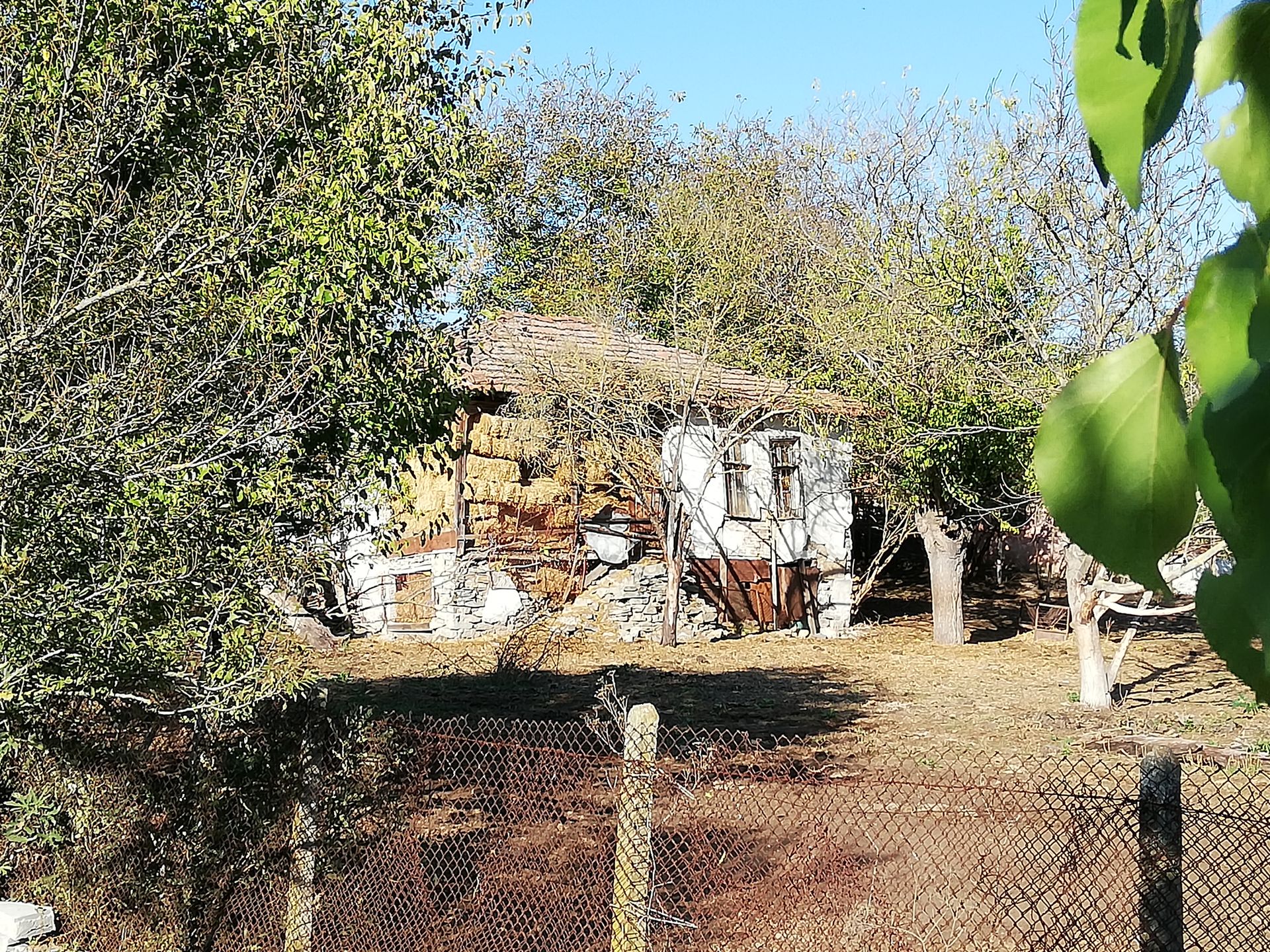
None of the previously three restaurants are still in operation. The British man is very sorry to see the village gradually dying out, but he also doesn't have a solution.
The next morning, we set off early to finally taste the so-called "blood of the earth". Of course, I'm referring to delicious Greek wine. ;-) After crossing the Bulgarian-Greek border, we headed straight to Alexandroupolis, following along the border with Turkey. It was an incredible feeling. (The blue dot is us, with Bulgaria to the top, Turkey to the right, and Greece to the bottom left, with our destination being Alexandroupolis)

As I mentioned before, we always try to spend the first night in a campsite in every country we visit. In Alexandroupolis, we naturally headed to the city campsite, which seemed way too big and luxurious for us. But it was supposed to be open all year round, which is rare in Greece. To our surprise, we were greeted by a friendly lady from the campsite security who told us that the site was closed. The problem was that there were no other campsites in and around Alexandroupolis. So, there we were. But luckily, in the age of mobile phones, there are various camping apps, and we found a free parking lot about 50 meters away that was perfect for an overnight stay. Wild camping is technically prohibited in Greece, but we read that they don't take it too seriously during the off-season.

After splashing around in the water for a while, we headed into the city to get a first impression of how the Greeks live. On the way, we also found out why the campsite was currently closed.
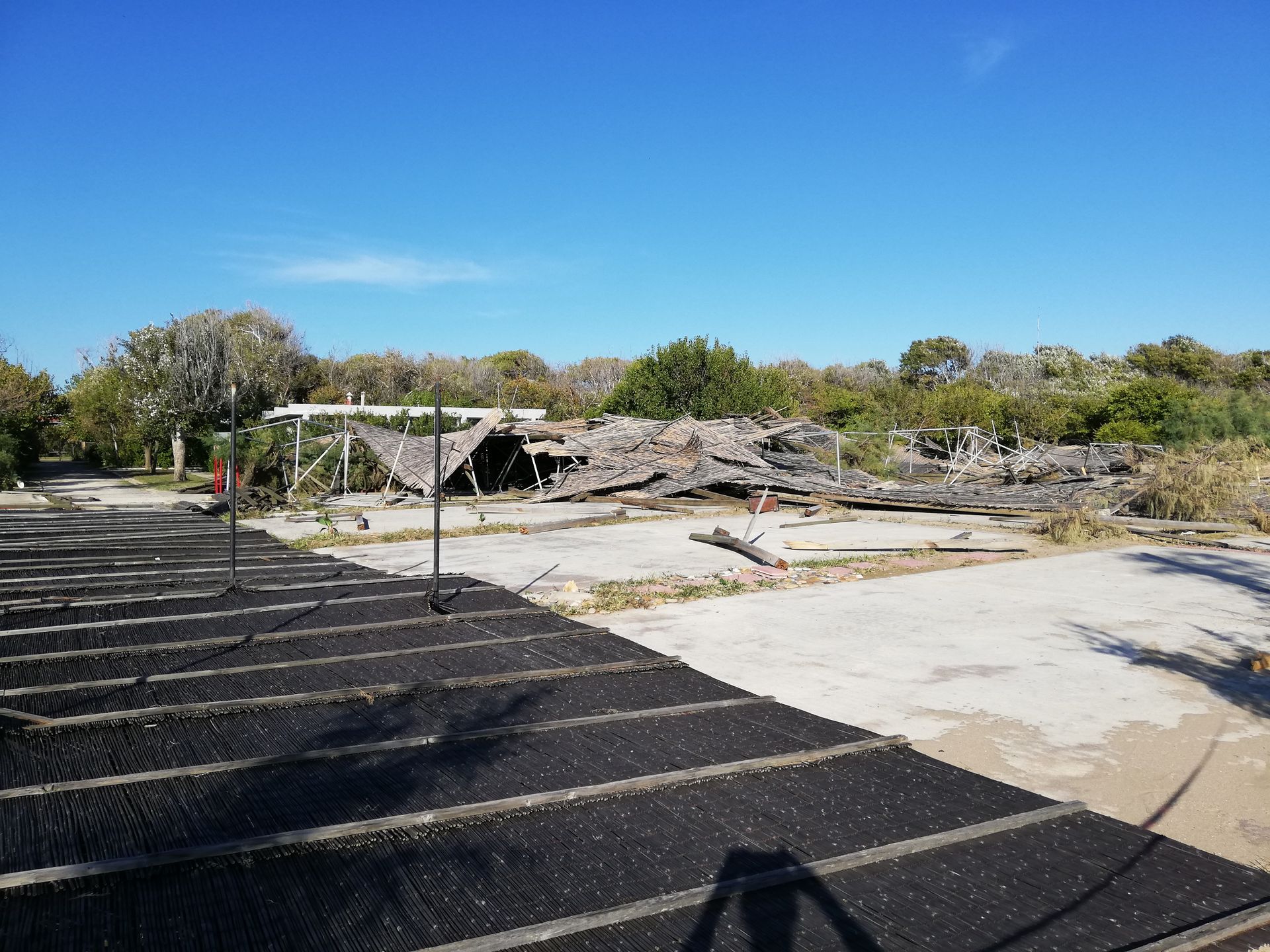
Hopefully, it only looked like this because of renovations.
The city itself looked quite nice. There were many beautiful buildings but also a few not-so-nice areas, like in any city. But you could tell that life takes place outdoors on the streets. The city looked especially beautiful at the harbor.

In the evening, we had the chance to go out for a nice dinner again.
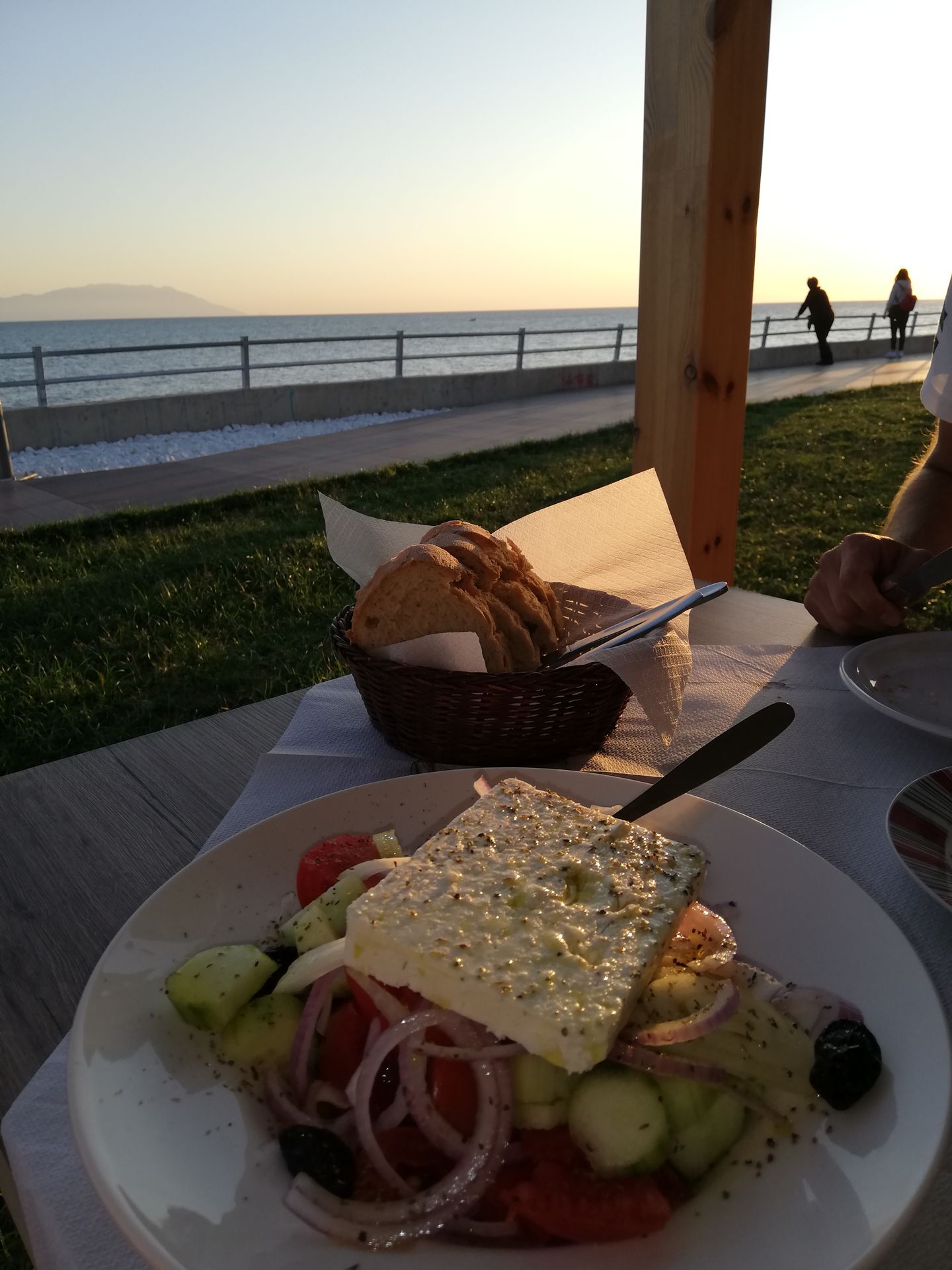

On the way back to the van, the city was still bustling, with many people still sitting in cafes or exercising.
The night on the beach was incredibly peaceful. The next morning, we woke up refreshed and had breakfast next to a few anglers on the beach. The people here made a very friendly impression on us. Especially when we met an elderly man on the beach who gave us a half a pomegranate to taste with a wide grin. When he found out that we spoke German, he proudly described his garden in German. He could speak a bit of German because he worked as a guest worker in Dortmund until 1980. After we had a little conversation with him, he took us to his car and gave us several apples and pomegranates, all from his garden. He wouldn't be able to eat them all, and he didn't want to hear a thank you. Truly wonderful!

Later that morning, Olli went for a jog through the nature reserve once again, and Kerrin had some fun on the SUP.


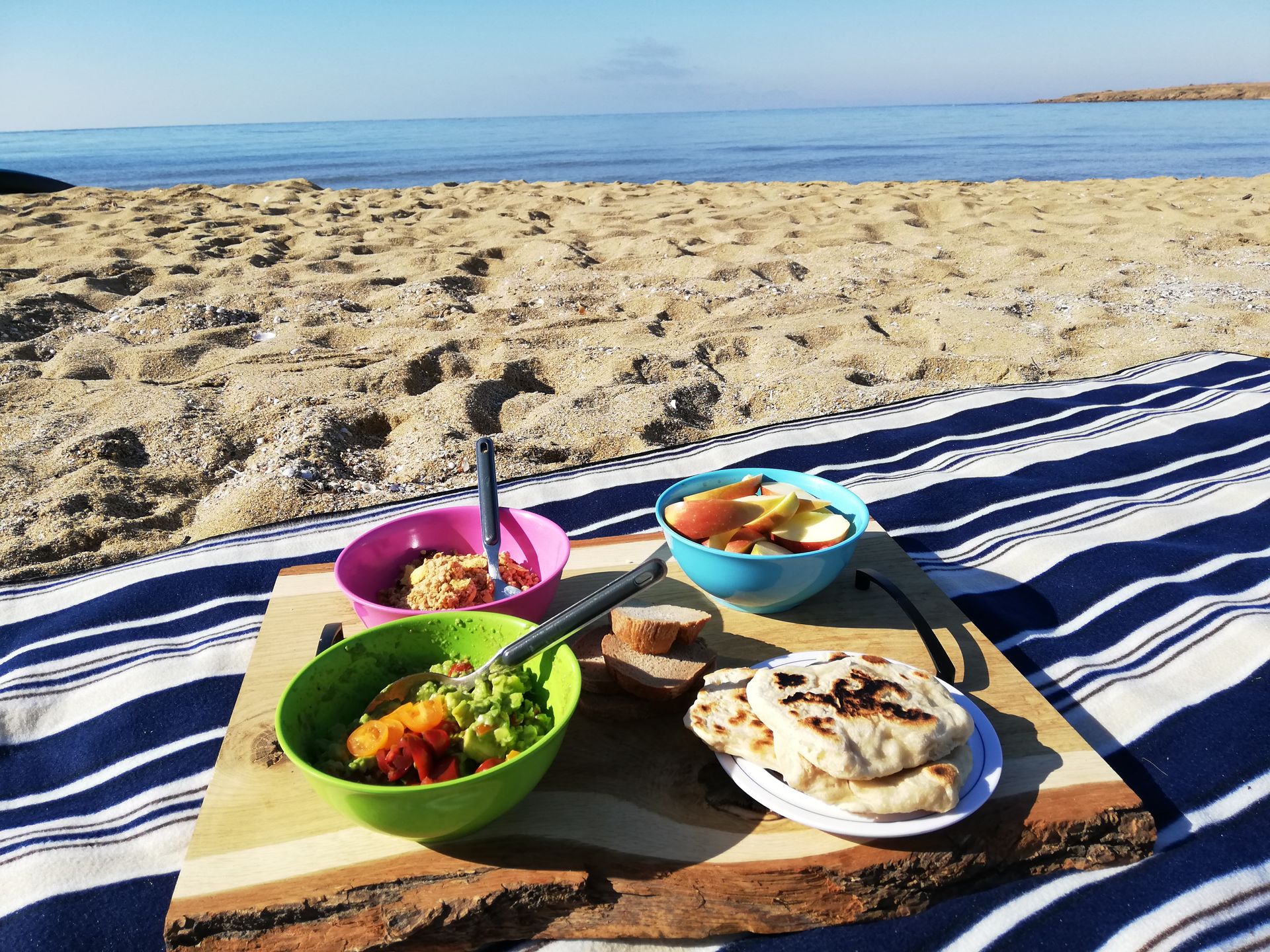
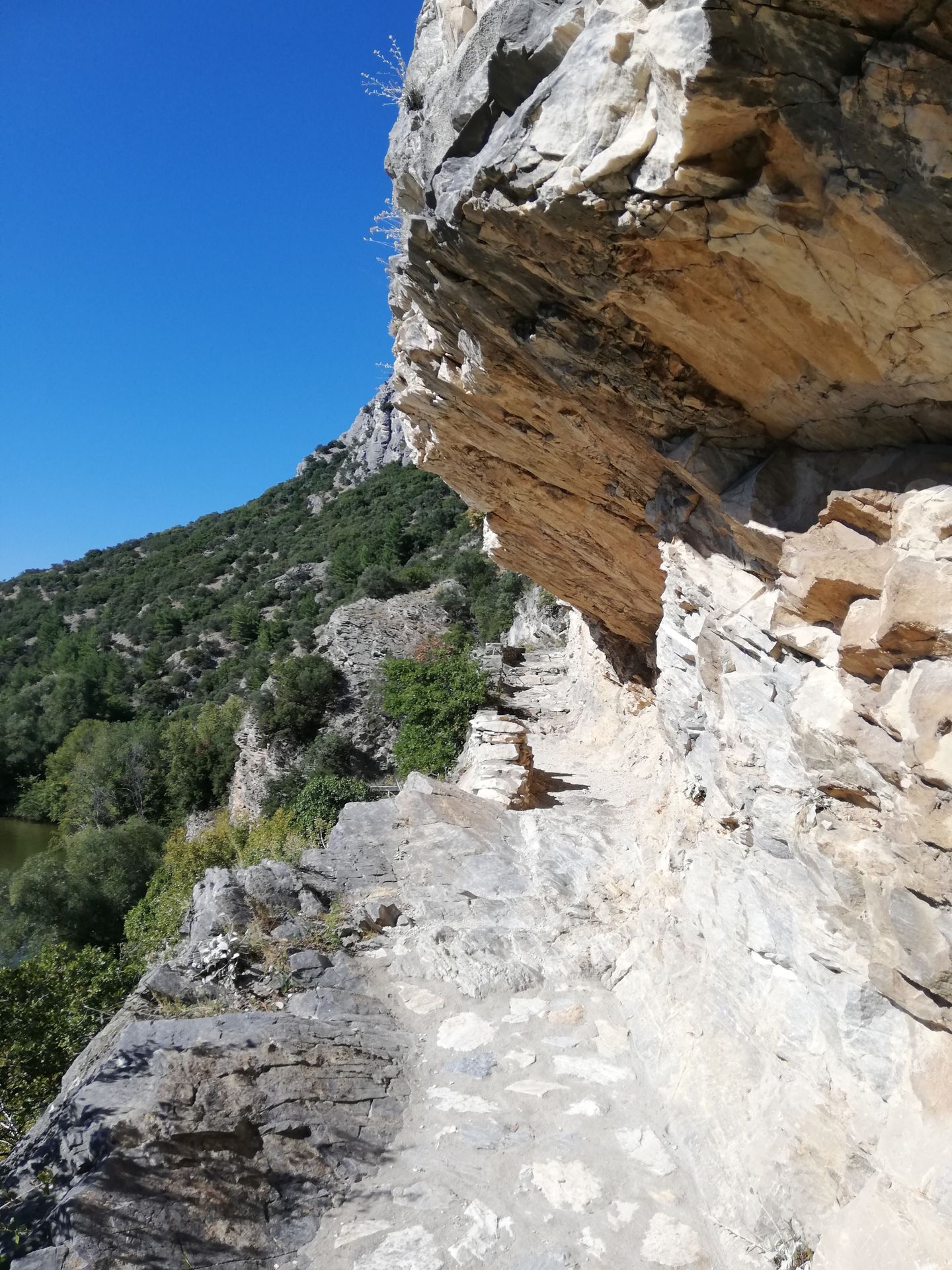
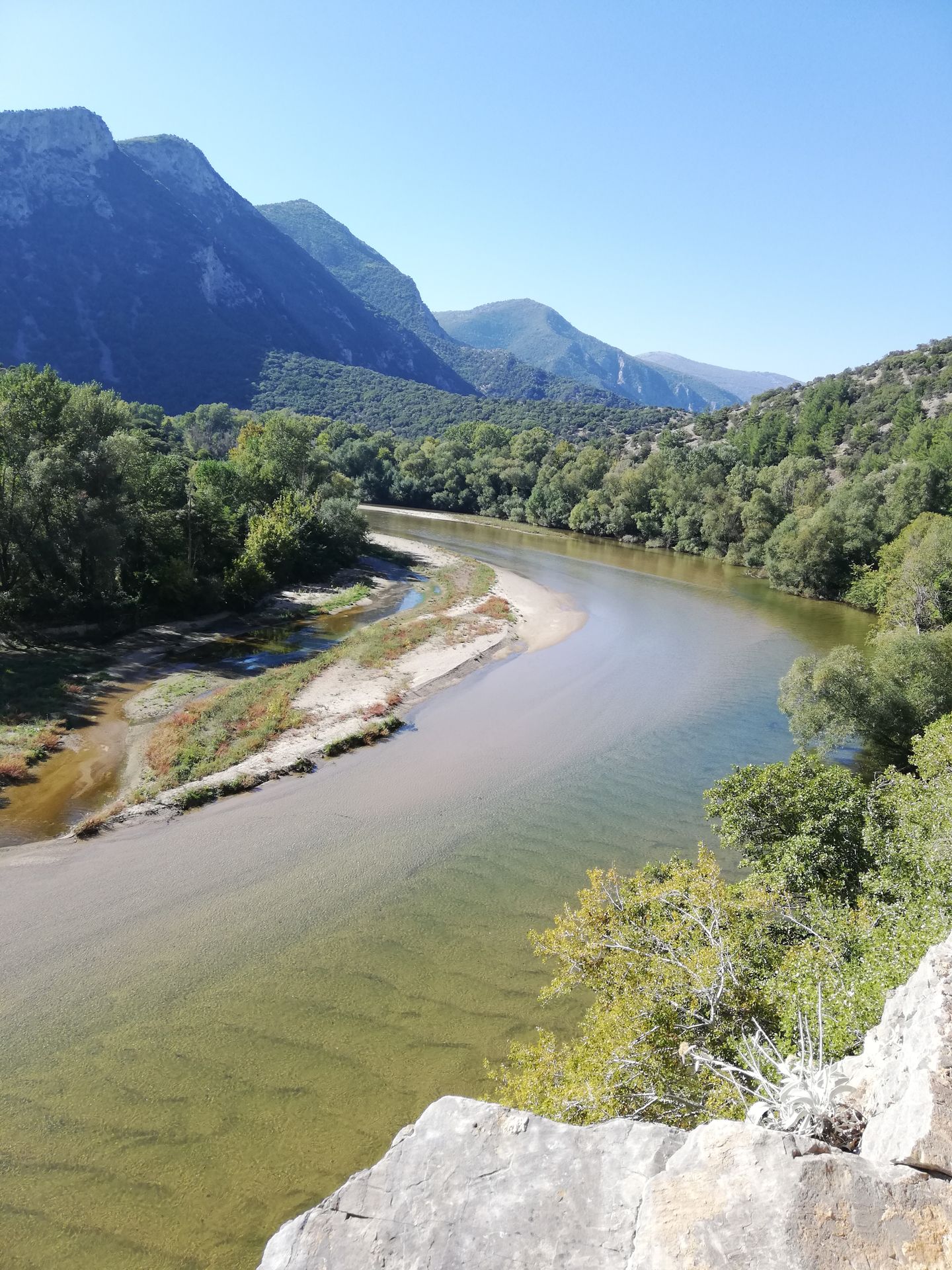
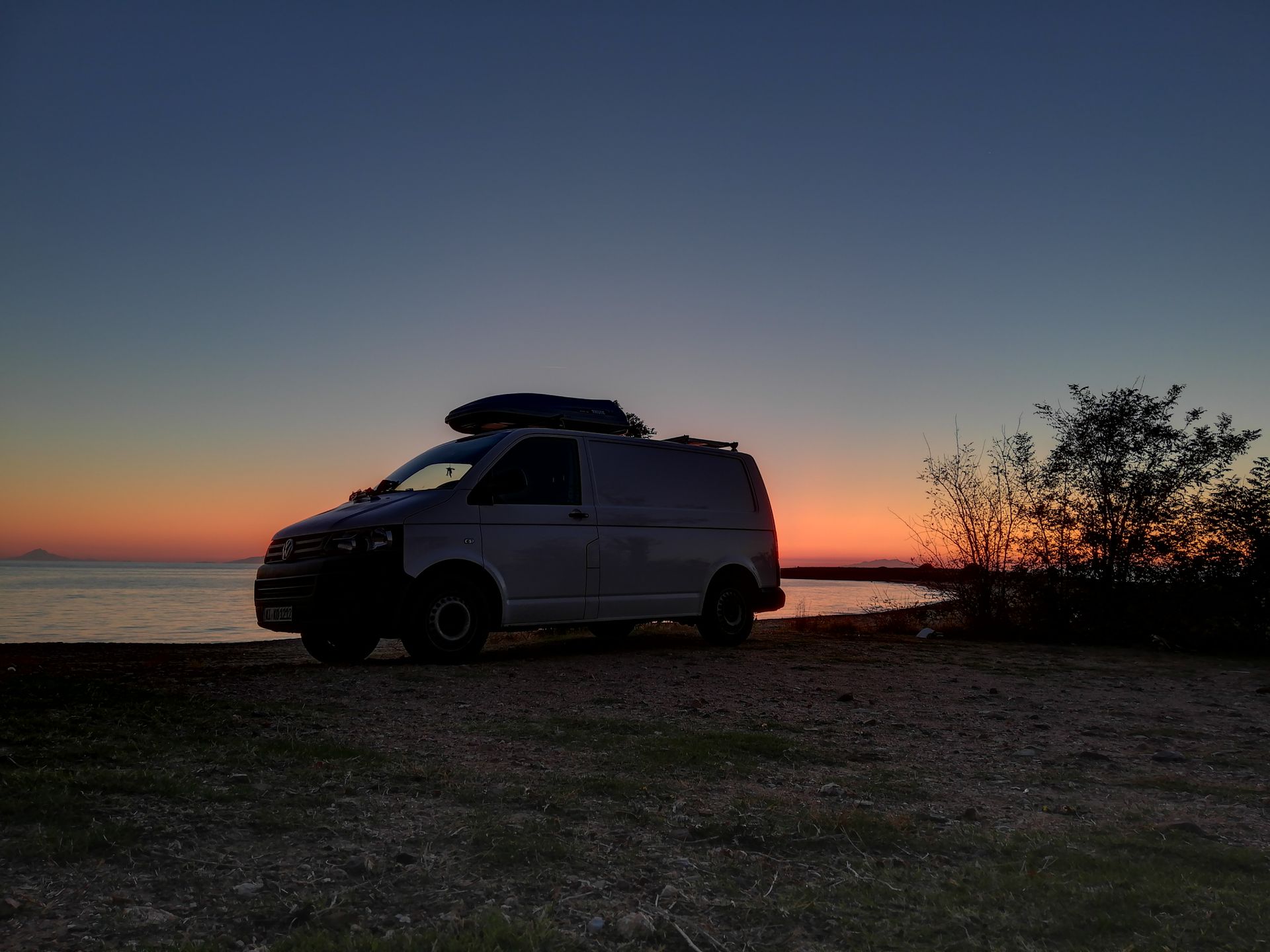

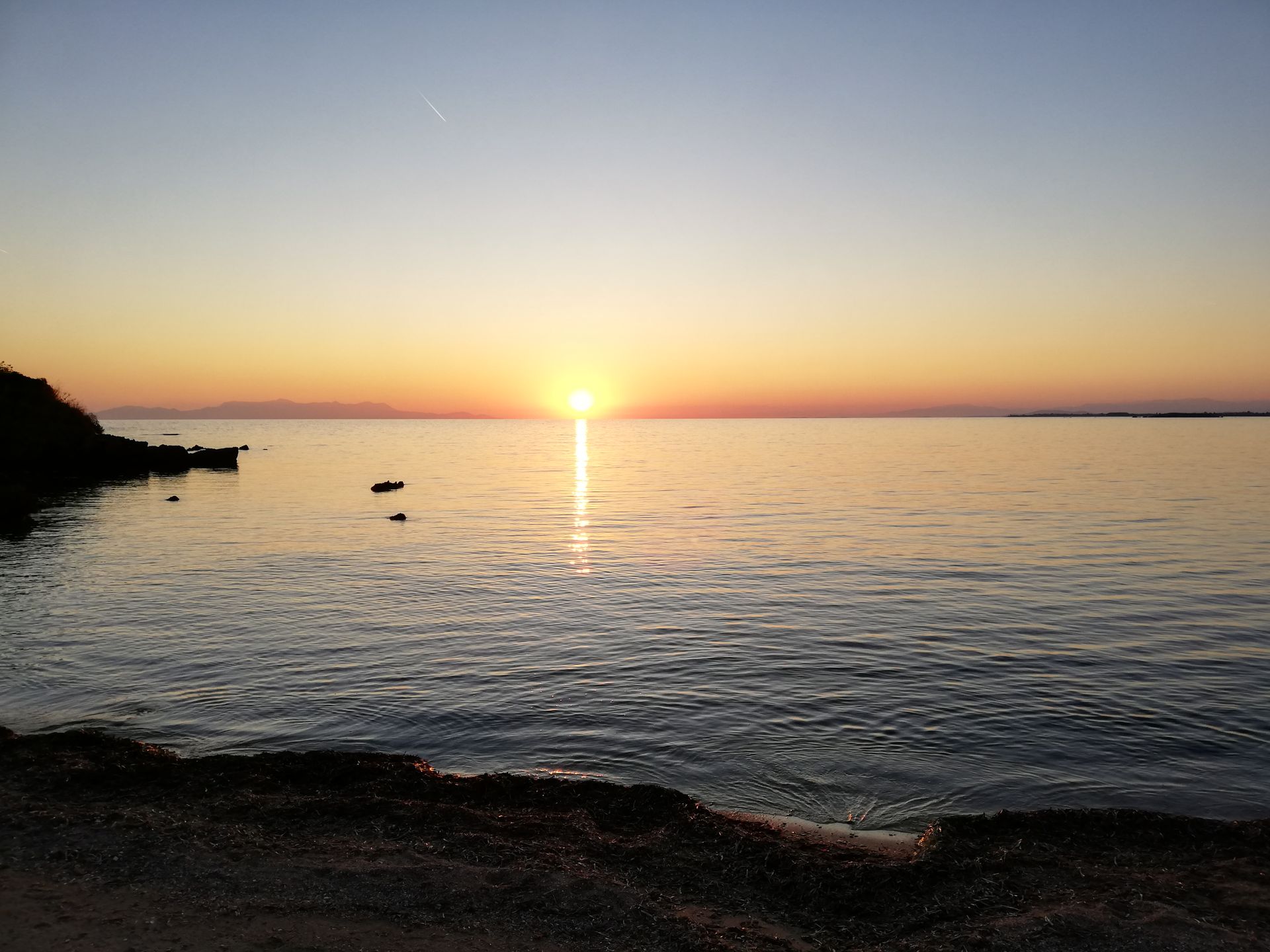
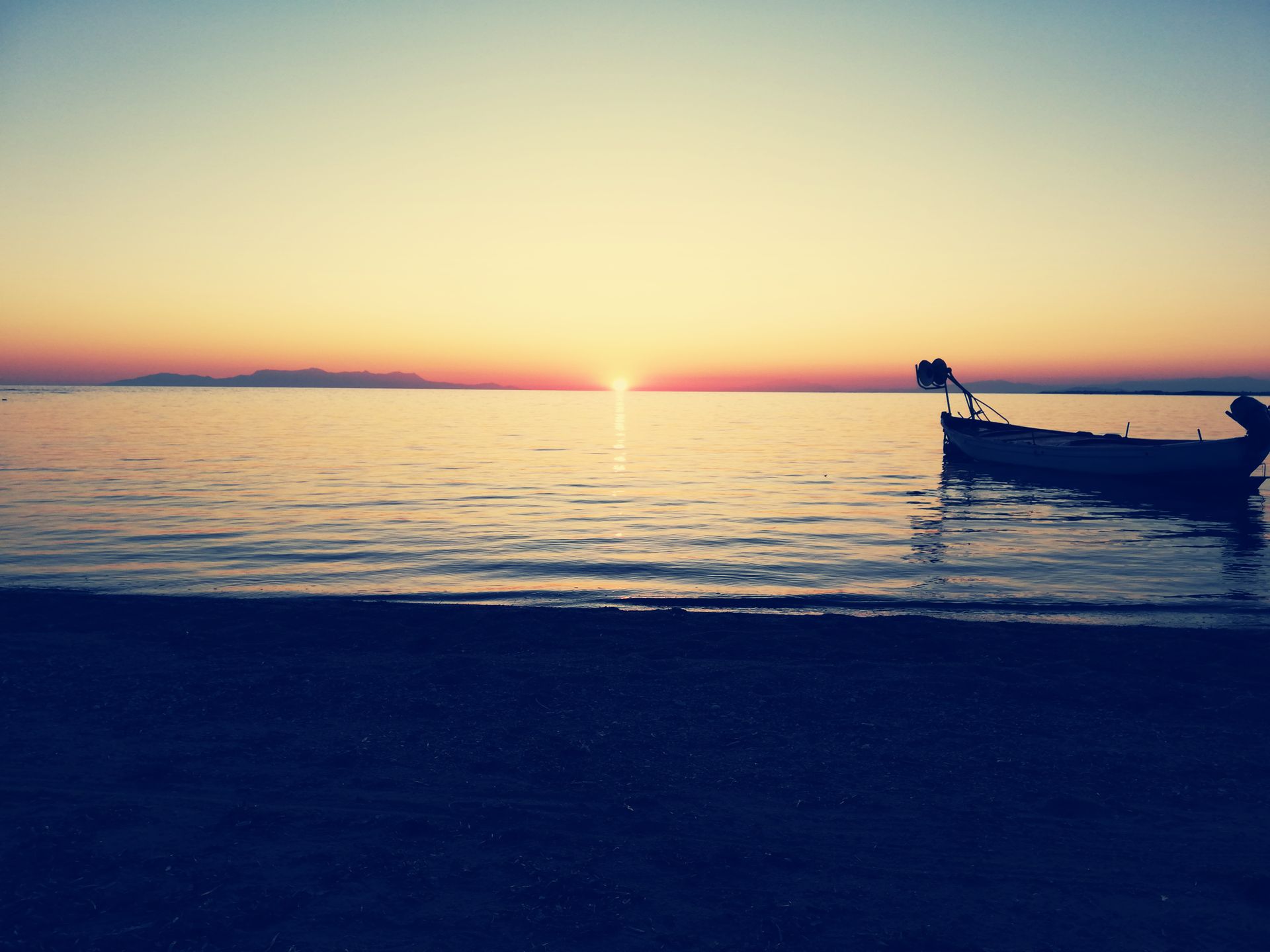
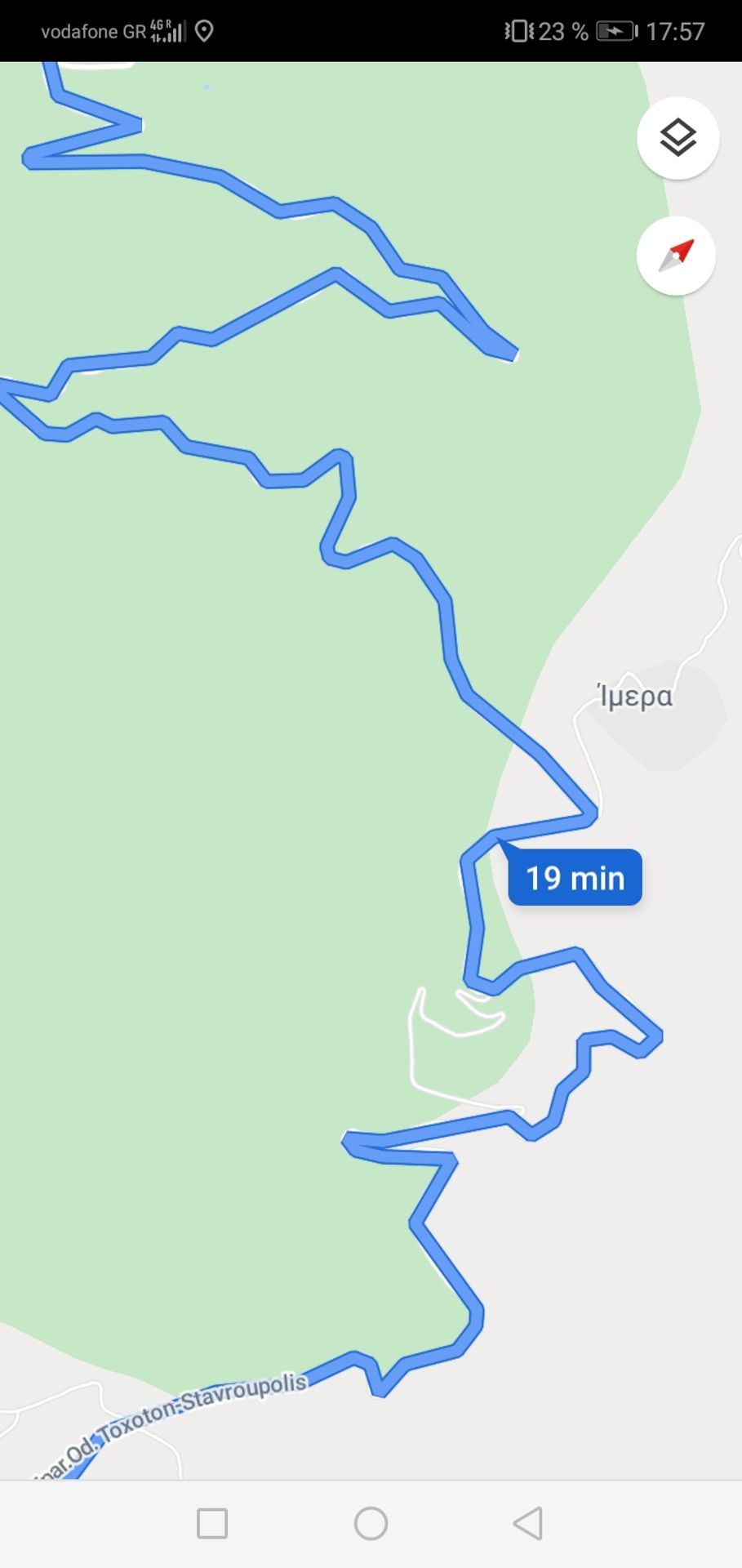
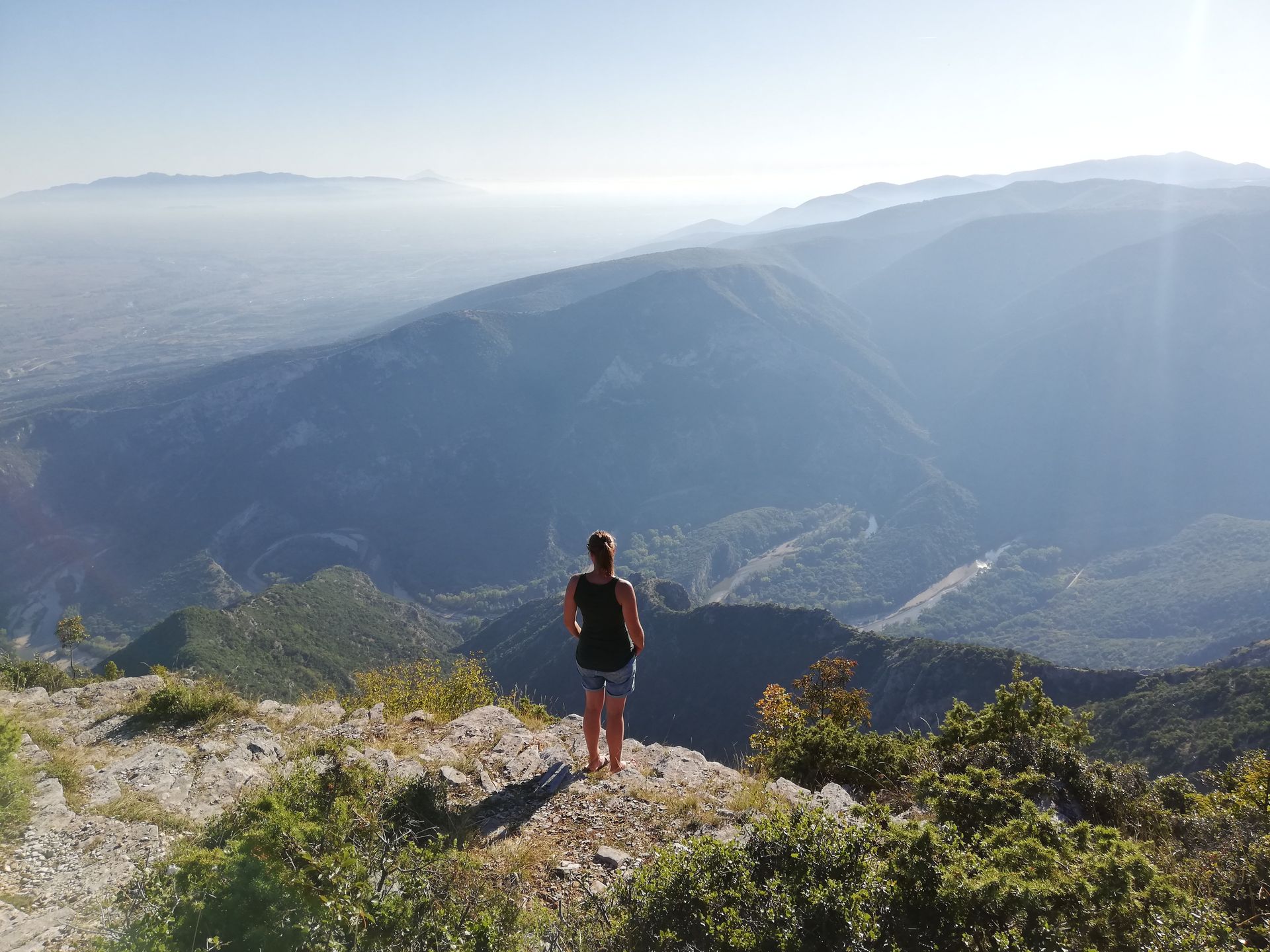
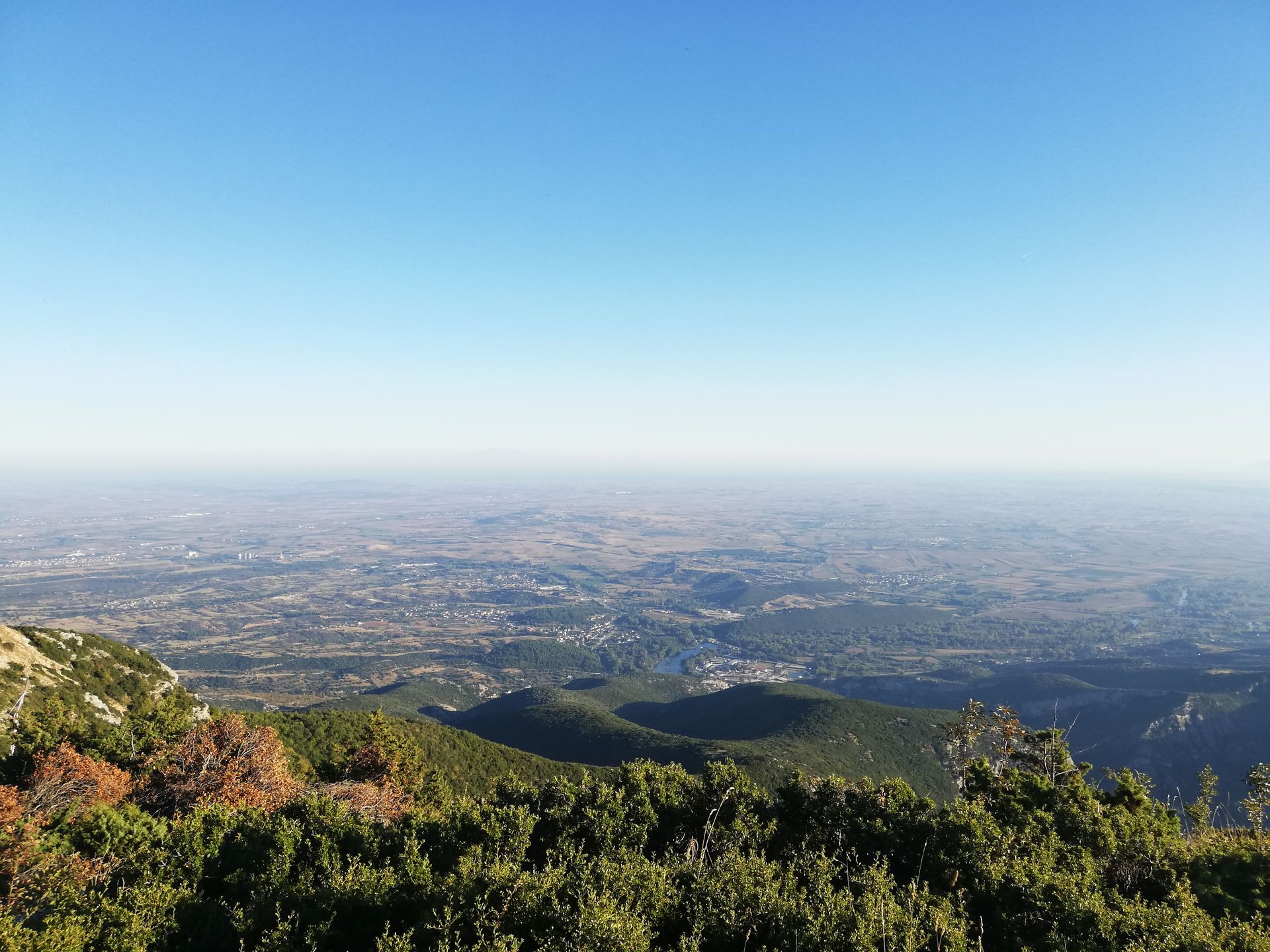
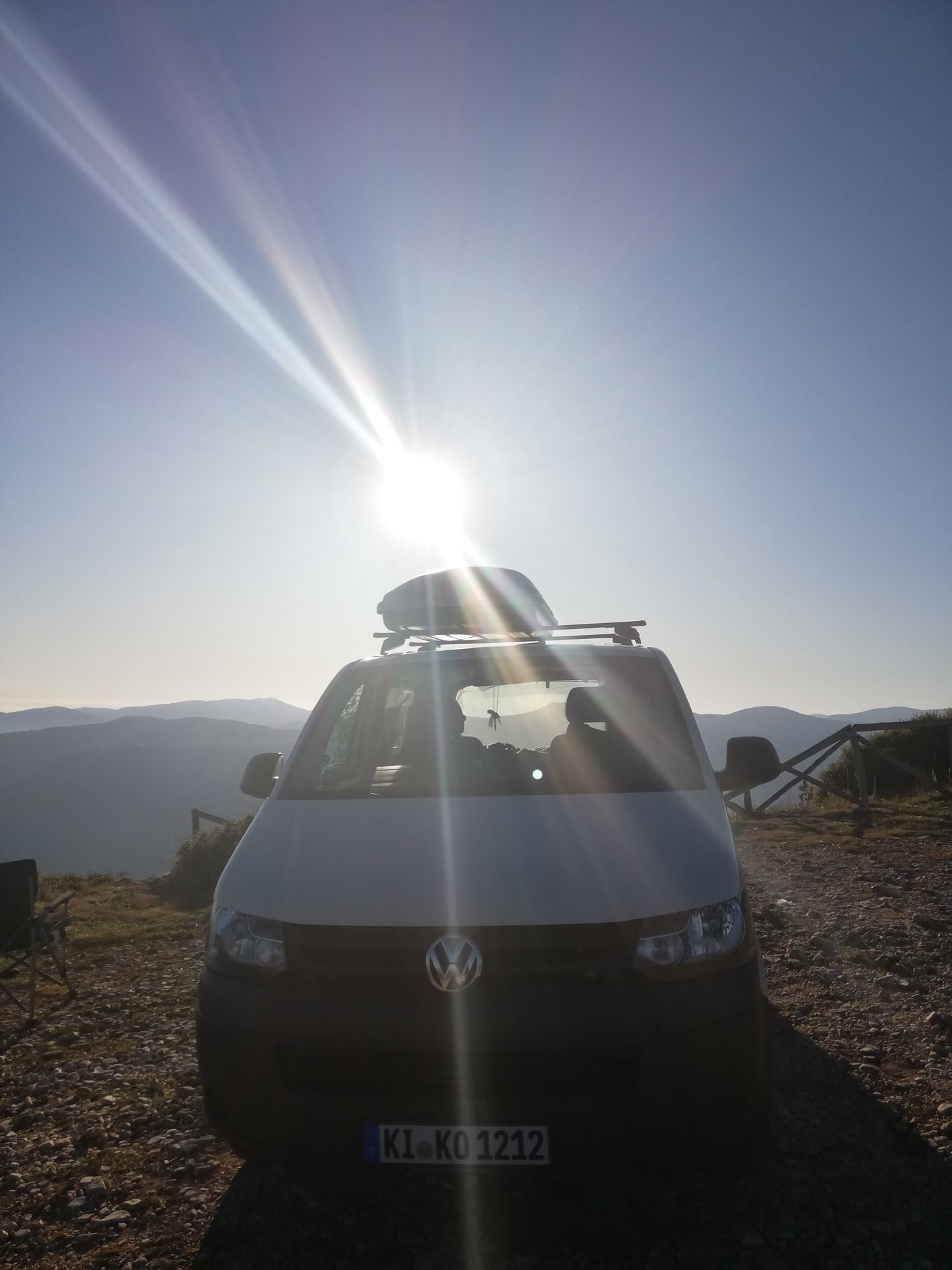
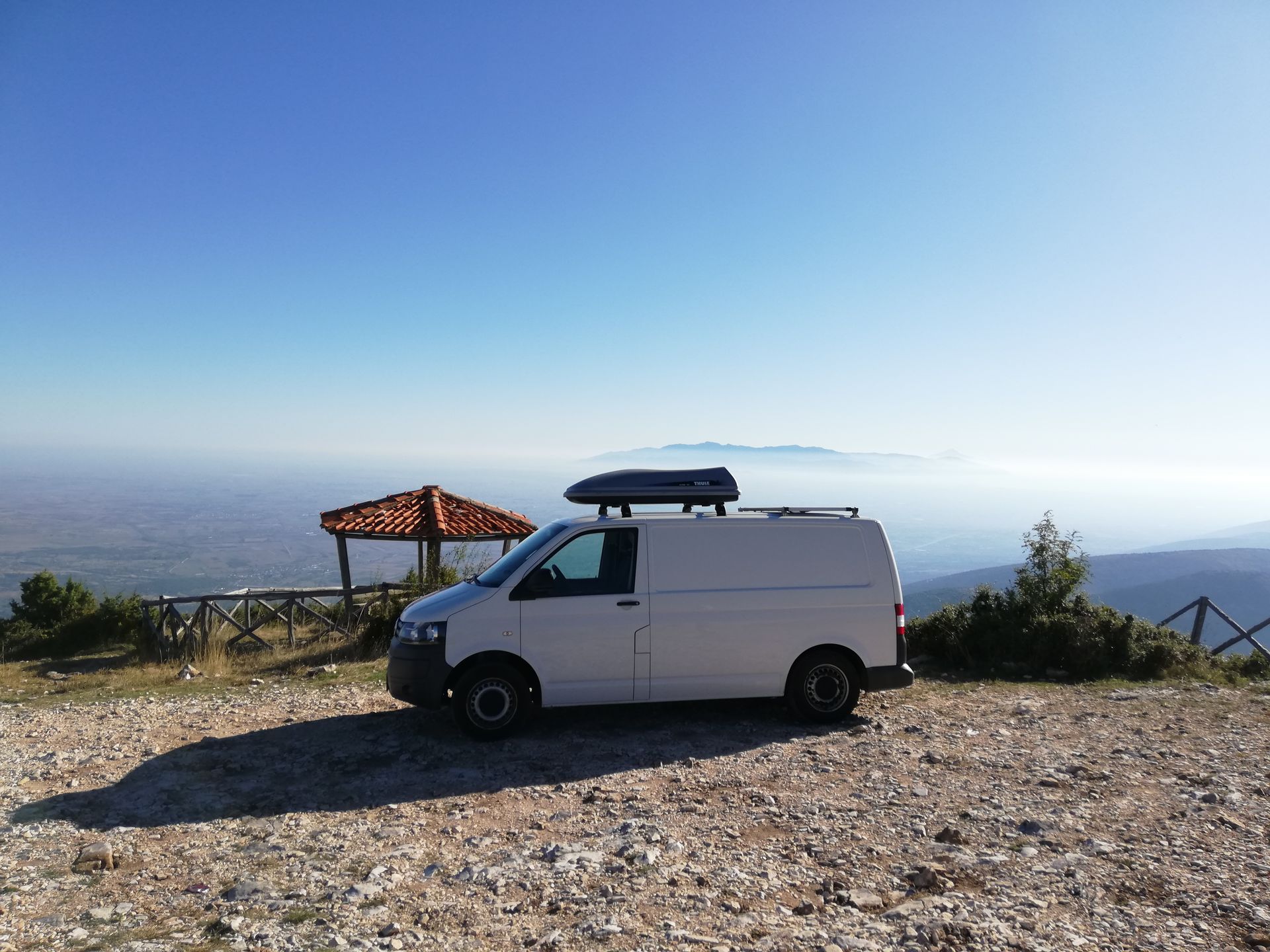
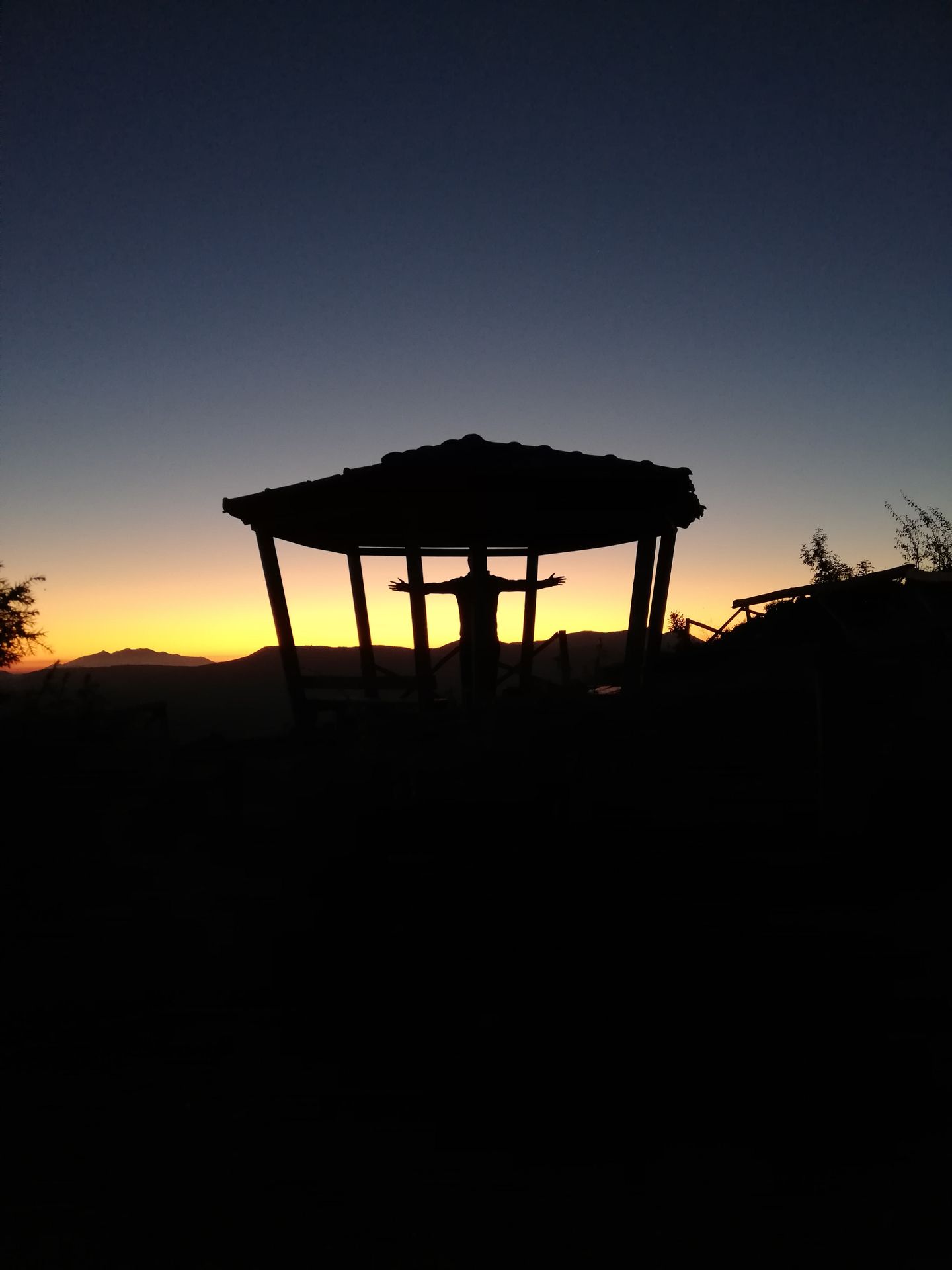
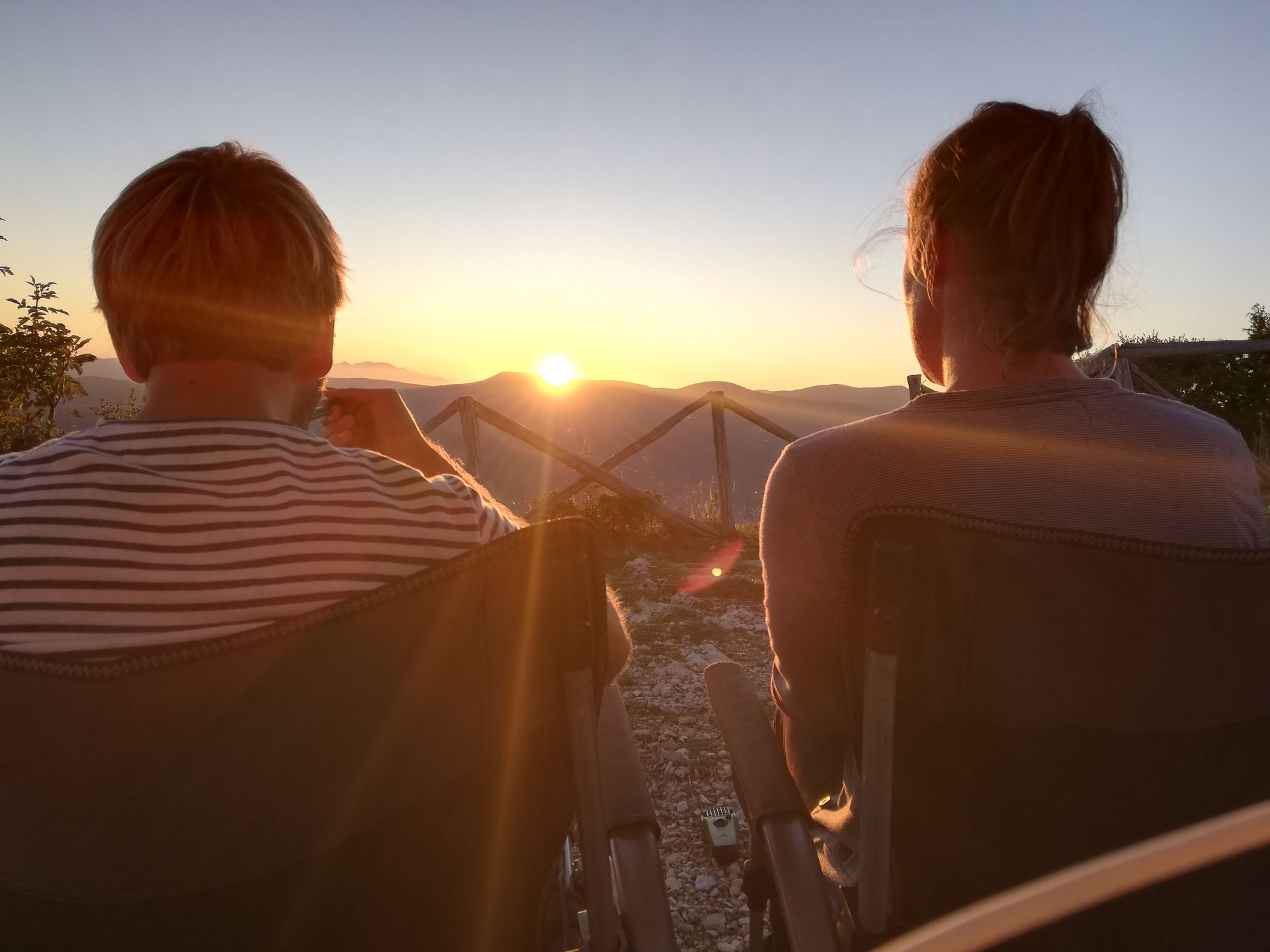

The next morning, we watched the sunrise and played a game of Yahtzee in the morning. Everything was perfect, and the place gets *****.
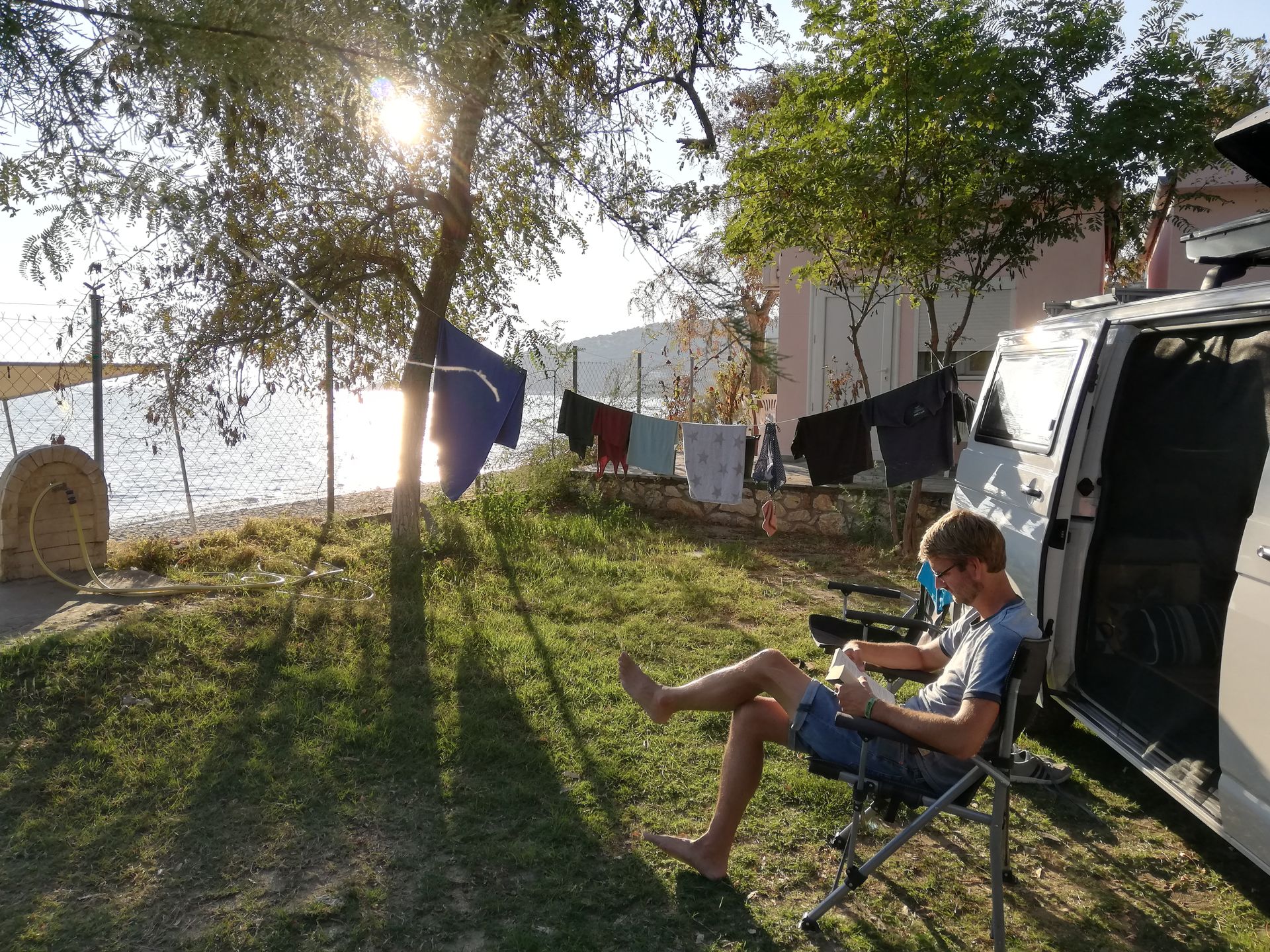
With so many opportunities for free camping in eastern Greece, it was difficult for us to go to a campsite again. But our laundry bag was full, and our water canisters were empty. We found a place near Kavala and even though we checked over the phone if it was really open, we decided to drive there anyway and take care of everything. Since it's the off-season in October, we were able to park in the front row, just three meters from the sea.

The next morning, we planned to visit a city once again. Since we always indulge in exploring cities from morning till evening, we were looking forward to visiting one after a long time.
Kavala is a harbor city with about 70,000 inhabitants located on a hillside. Thank goodness, we decided to park outside the city because Kavala's parking lots and street layouts were extremely chaotic. Unfortunately, the chosen parking lot was behind the city, and we still had to drive through it. The many small side streets from which scooters shot out made it very confusing, and to make matters worse, every road was steep due to the hillside. For comparison, here's an overview of the streets in Kavala compared to the streets in Flensburg.


After we managed to navigate through the chaos, we entered a leisurely stroll mode and enjoyed the day at 23 °C. We walked along the waterfront all the way to the city center, which was very idyllic.

At the top of the peninsula, which houses the old town of Panagia, is the city's old fortress. The path to the fortress led through the most winding alleys I have ever seen, and no house or property resembled another. The limited space was completely utilized, with each corner built up. Many houses were painted in vibrant colors.
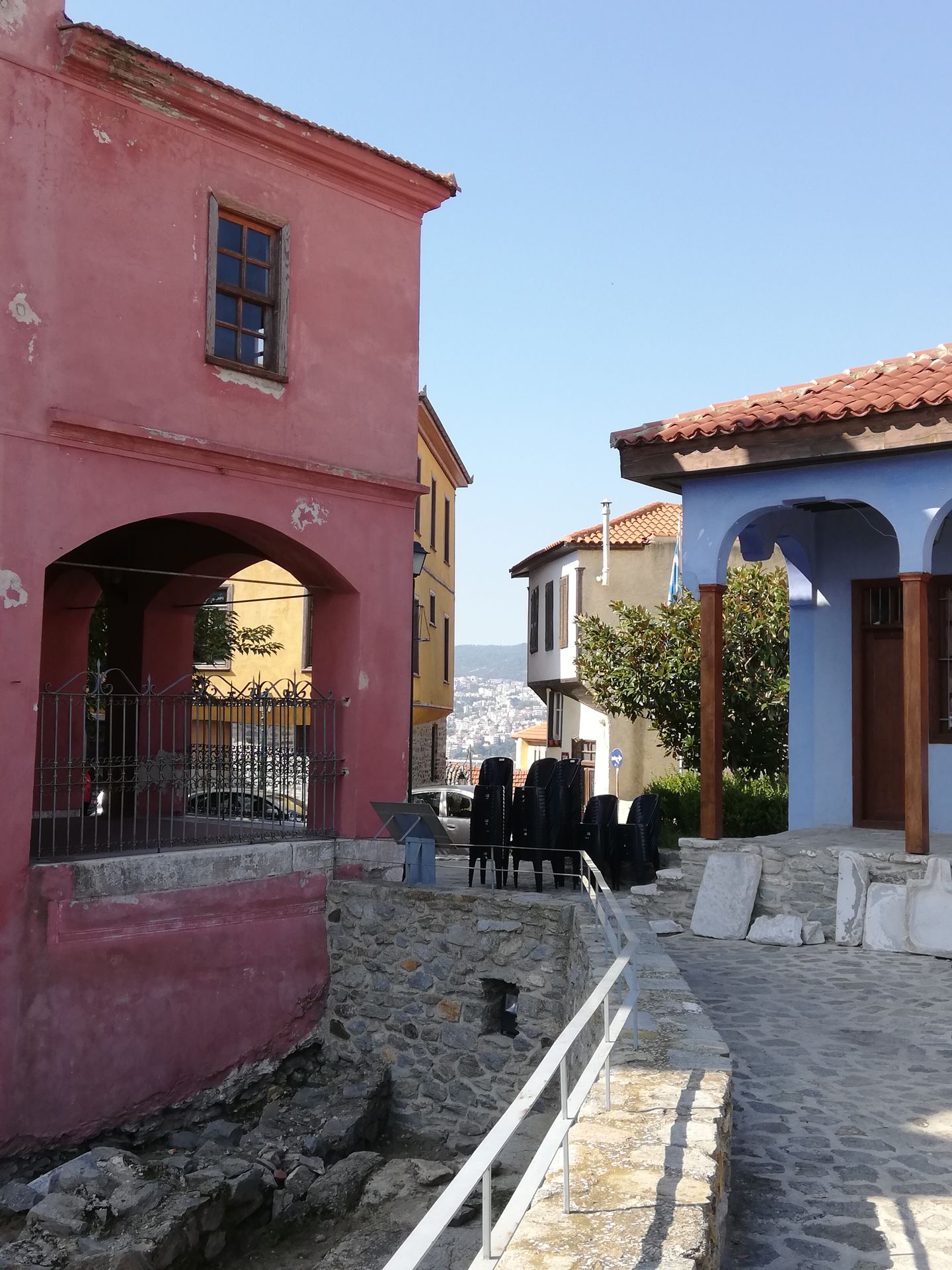
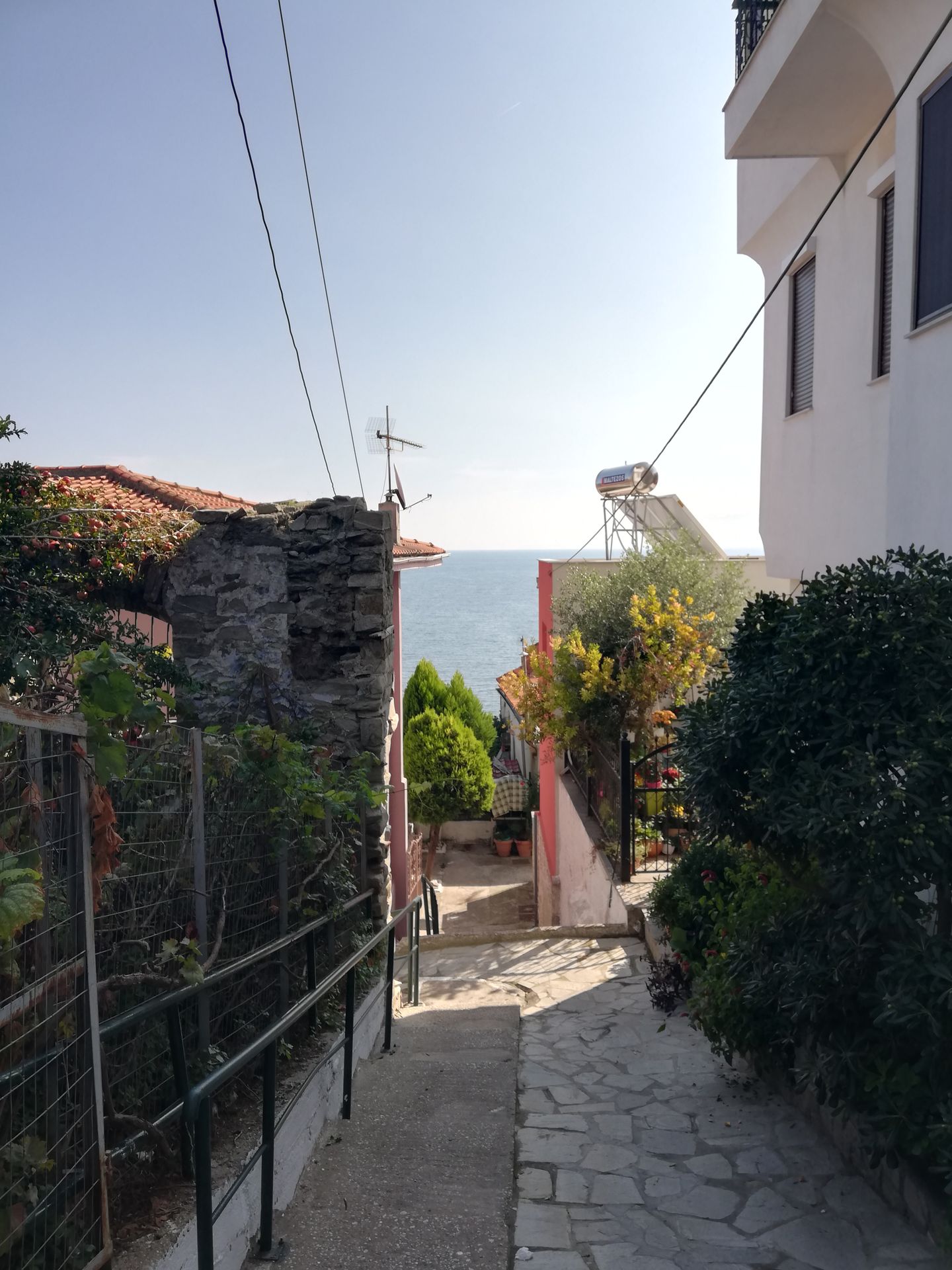
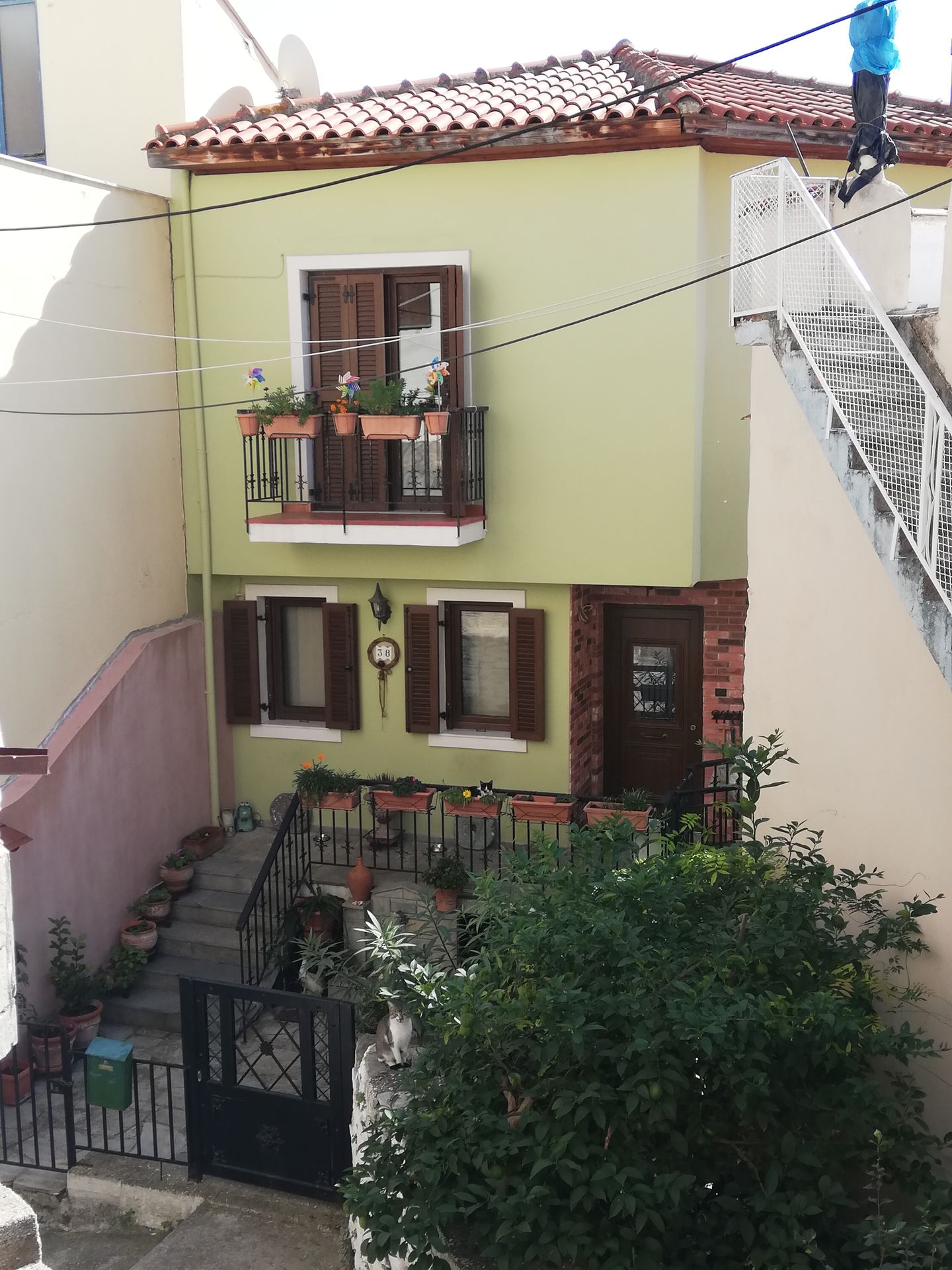
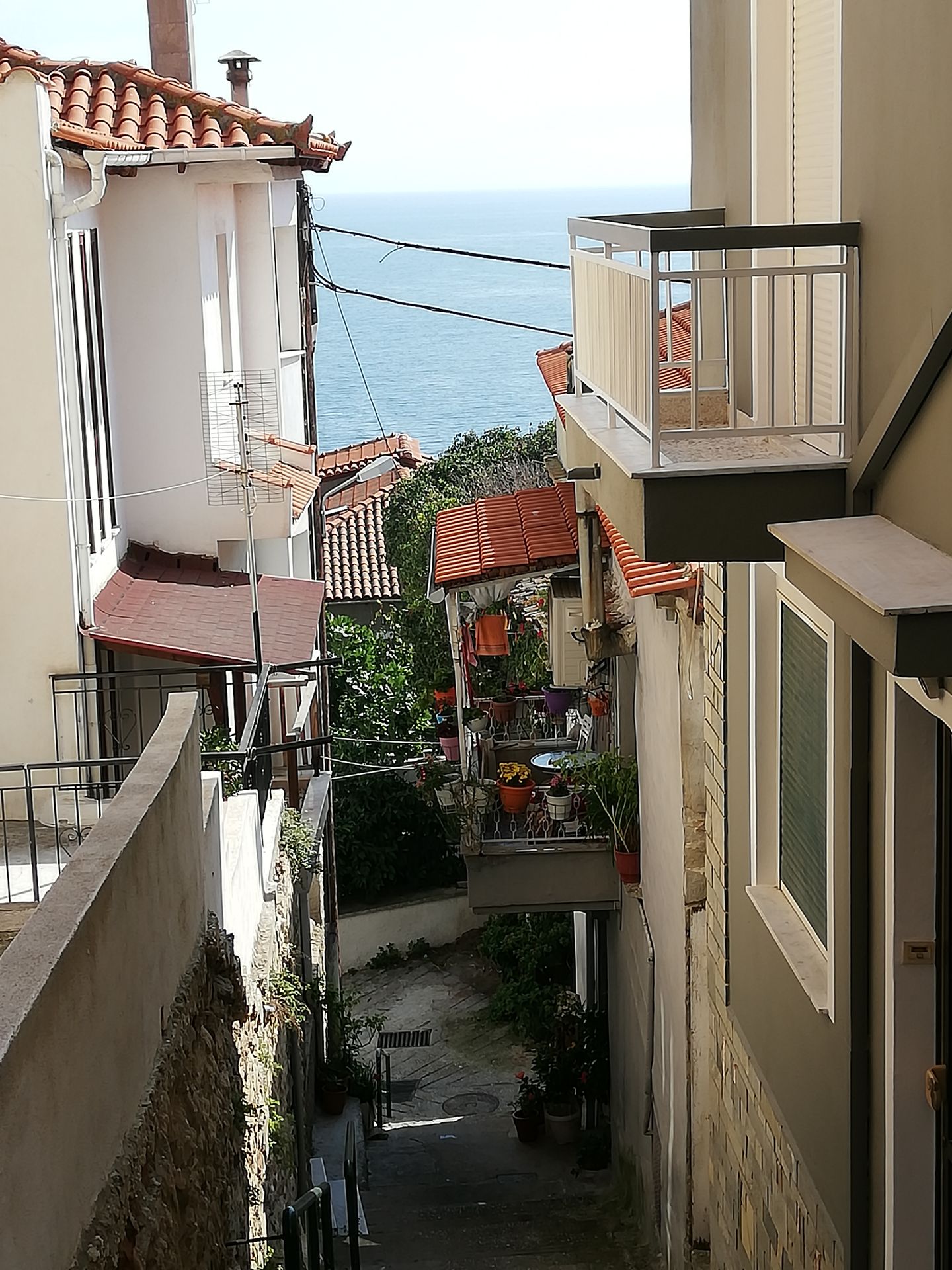
Once we reached the top, we had an incredible view of the entire city and the two-story aqueduct, which is the city's landmark.
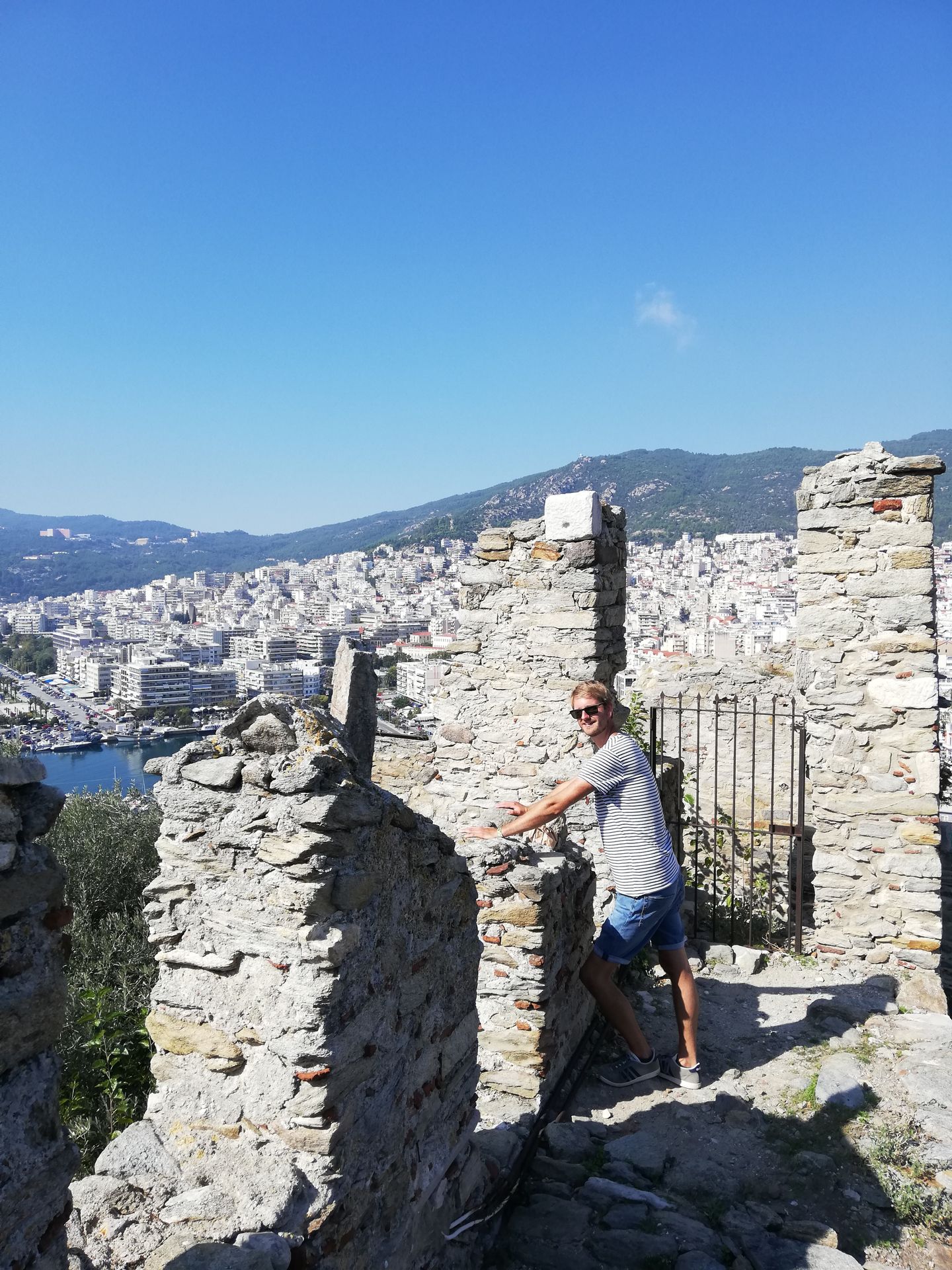
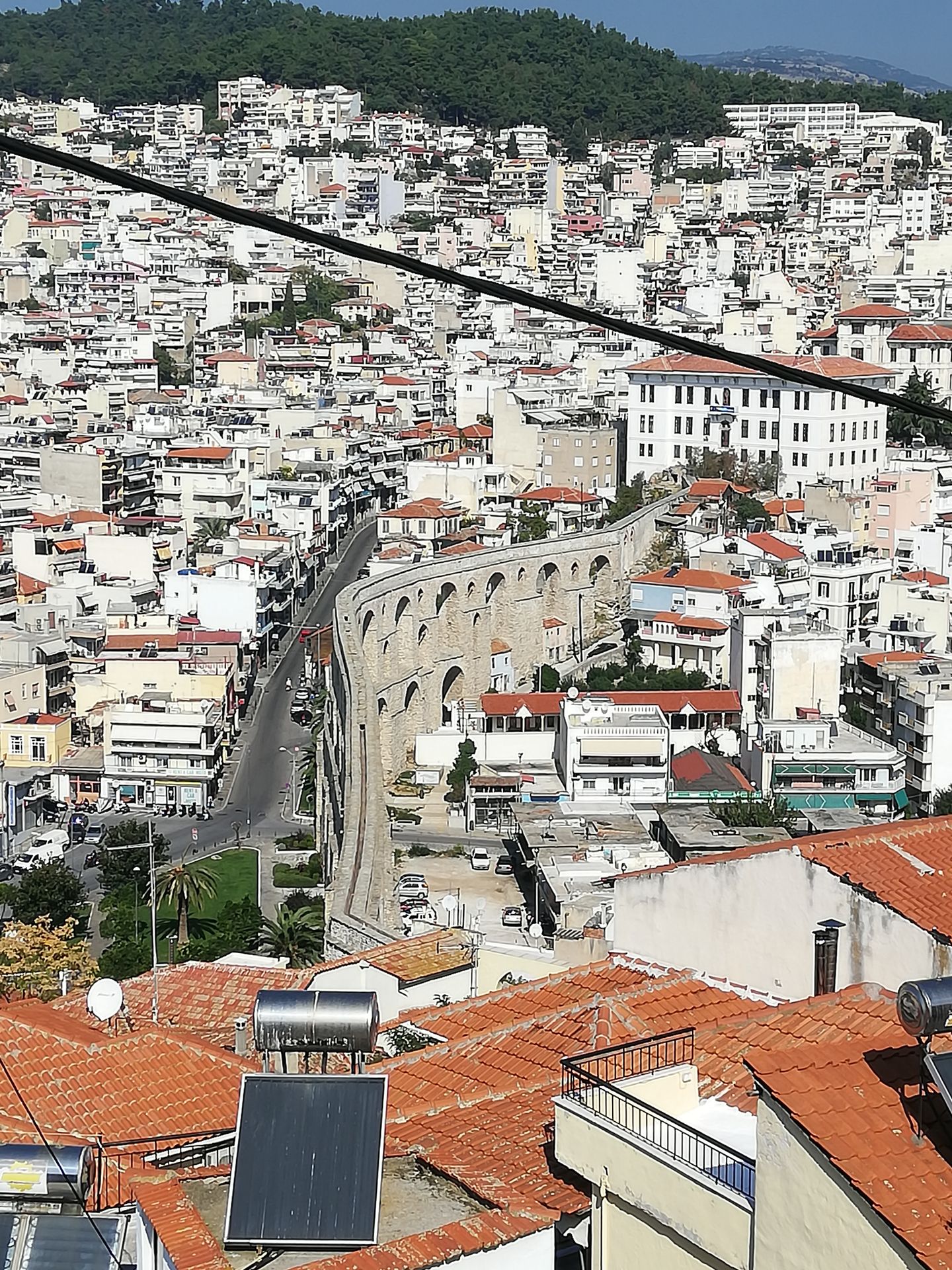
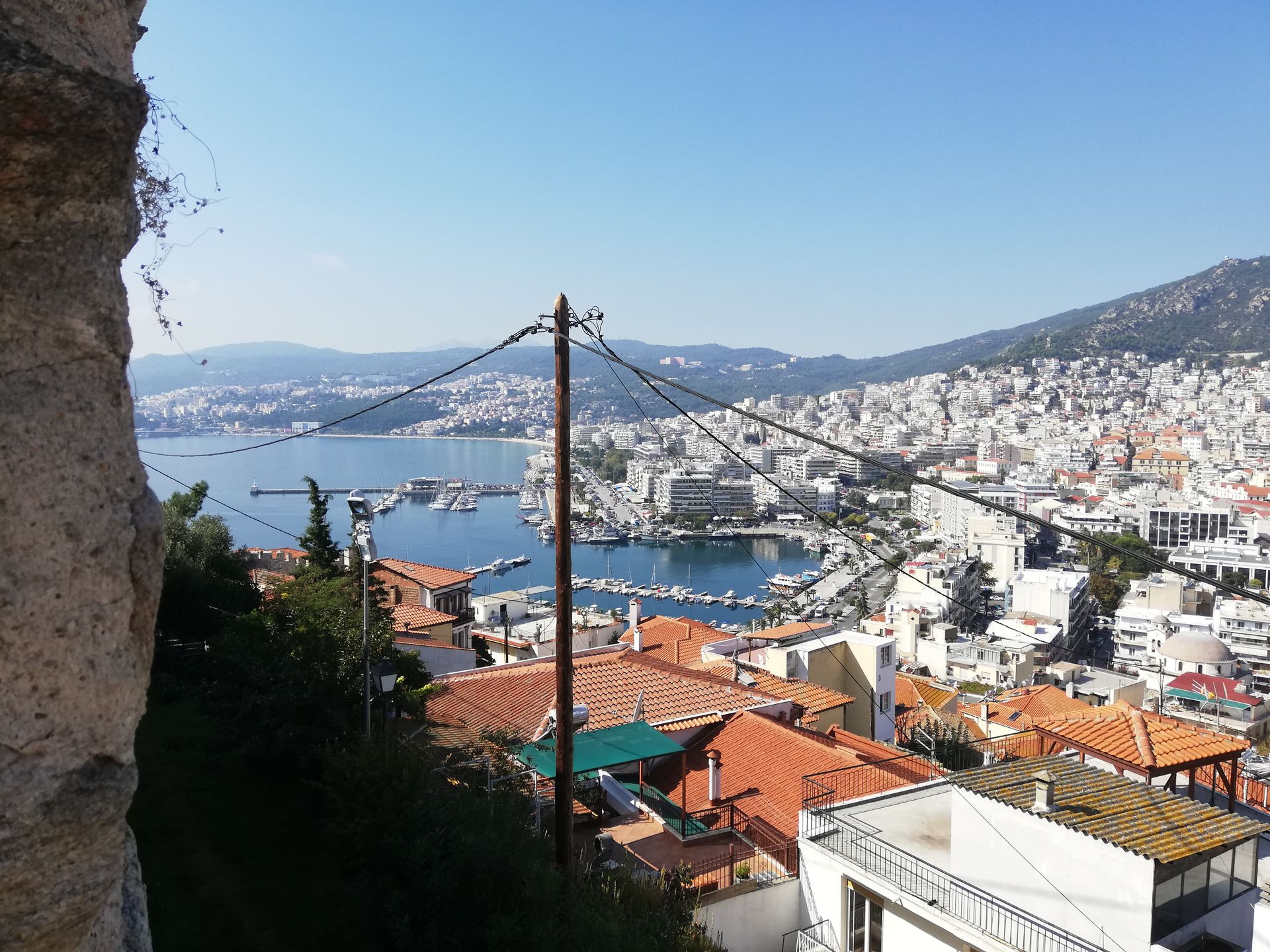
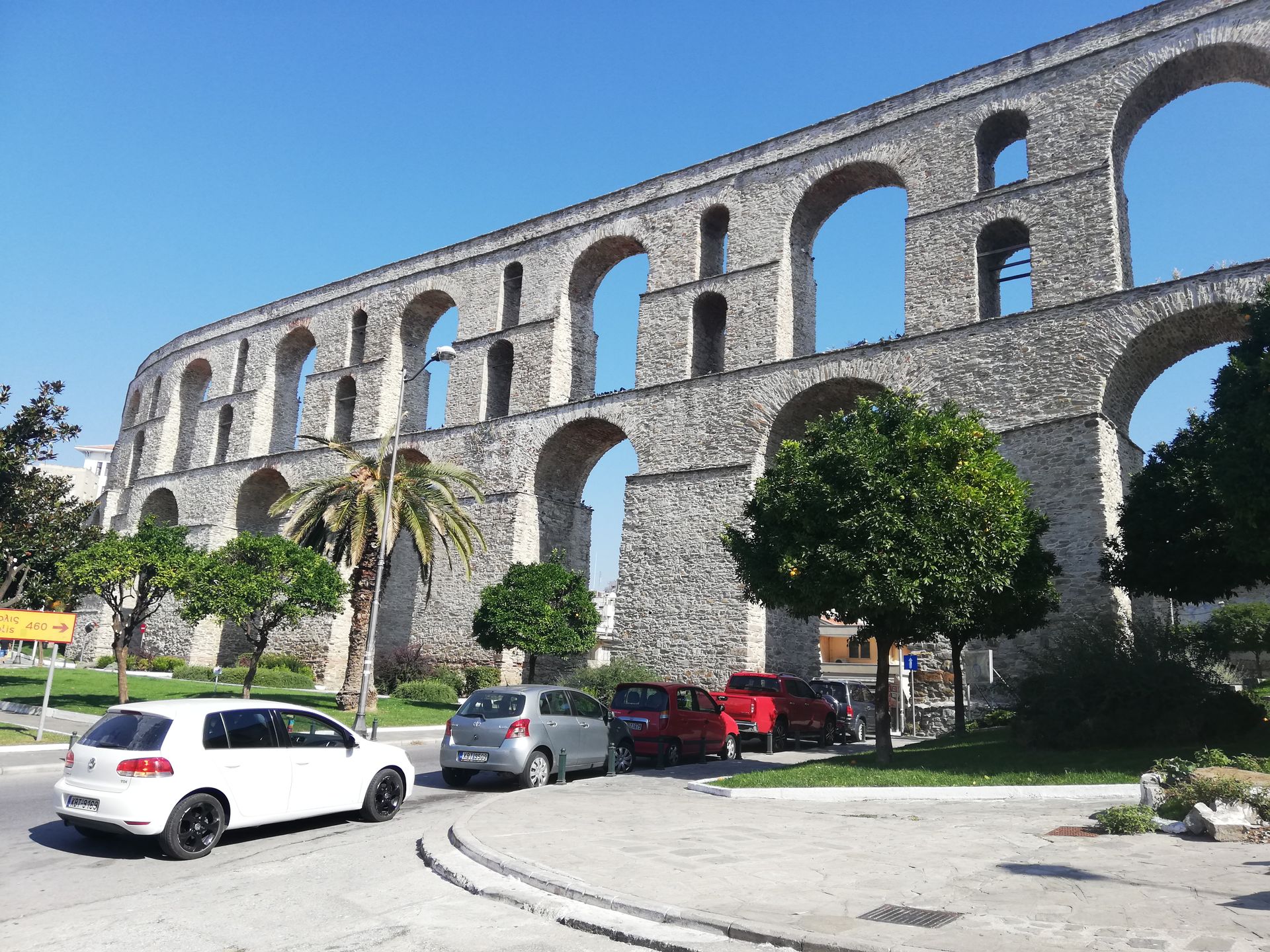
In addition to other treats along the way, we had a typical Greek meal in the afternoon.
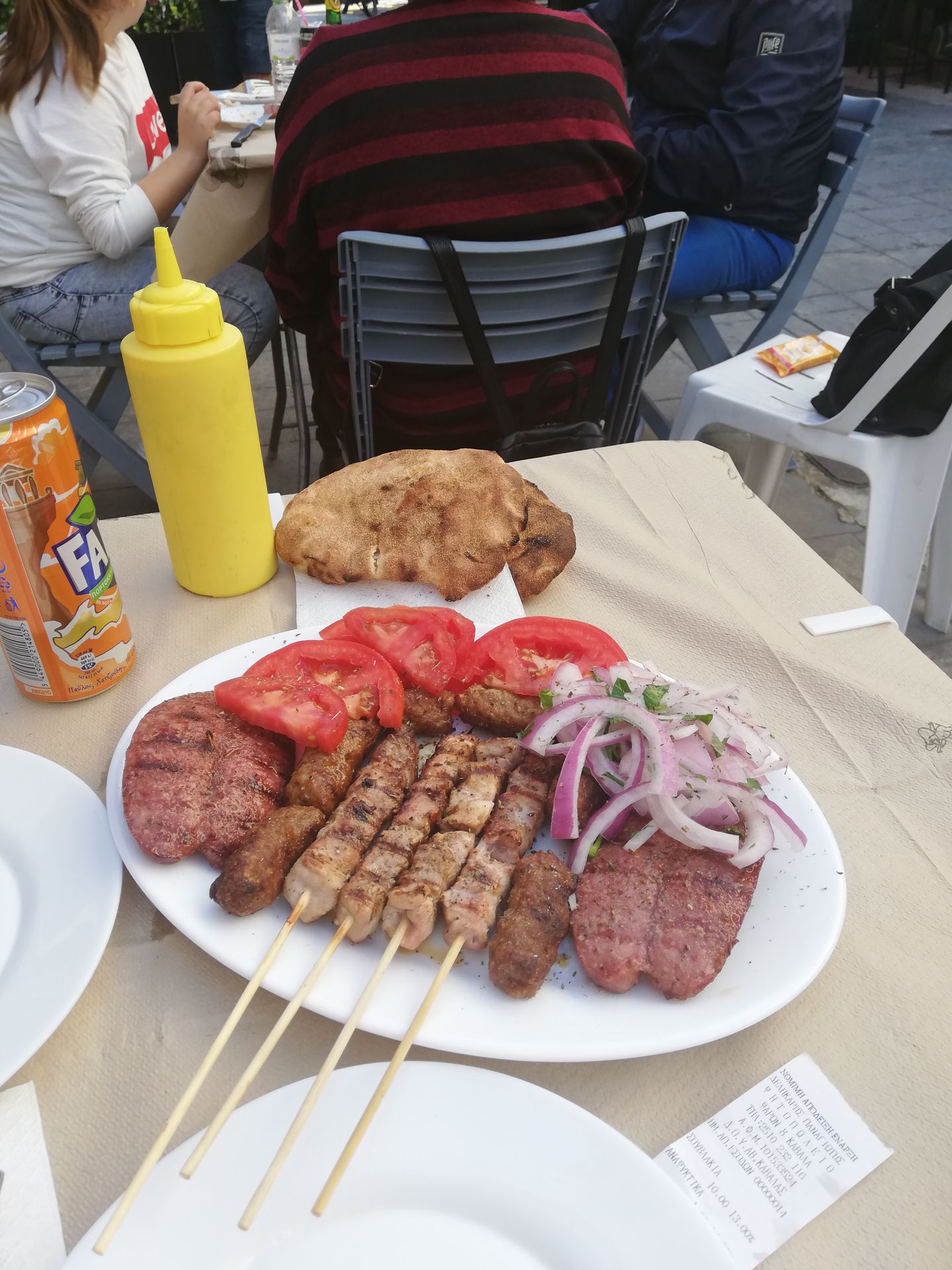
The day trip was once again very successful, and we looked for a place to spend the night, satisfied and full. But as we were getting used to in Greece, we found one just 20 minutes away. Right by the sea with a great view of Kavala. Yeah, life's been tough for us here ;-)

A little detour to the present. We are so delighted with the fantastic free camping spots in this country that we reciprocate by picking up trash at each spot. While Greece is not as littered as other countries we've visited, there is still no place without litter. We almost always manage to fill a bag, mainly with plastic. We ourselves produce so much plastic waste daily, which annoys us. But we make sure to dispose of the full bags in places where there is a good chance they will be emptied in the next few days. Often, there are bins at lonely parking lots, but birds and strays plunder them again, starting the problem from scratch.
Biyan kuɗi zuwa Newsletter
Amsa (1)
Cornelia
Toll, mehr davon!